#Like just the fact that at every turn they completely fail to emphasize the traits that made the original such a cult classic
Explore tagged Tumblr posts
Text
SOme kind of hubris beyond the limits of what should even be humanly possible has to have been involved in the making of this i am genuinely baffled and have never missed what little we knew about the original conception of bl2 so bad. Save me mr damp
#Like just the fact that at every turn they completely fail to emphasize the traits that made the original such a cult classic#that are very very easily findable in various places online i mean tens of youtube videos probably hundreds if not thousands of posts#on the reddit. Just ignored time and time again in favor of#as someone noted in the comments of this video#making something that looks like a frantic dishonored clone nearly a decade too late#to the point where you can't even make your own character anymore. aka the central appeal of the original#Jesus christ its a ttrpg its like OC BUILDING SIMULATOR and they took away the oc part.#It's so crazy like all of these years I was never actually that worried and even when everyone thought the game was scrapped i was like#naw theyre definitely going through with it they damn near have to at this point and itll probably be at least a decent homage.#if maybe overly derivative or retreading the same ground#But watching this I am literally just sitting here like oh my god it's actually over like for real. Jesus christ
1 note
·
View note
Note
💛 (Valtor) 🤍🤎 (Fallen Love)
🌷
💛 Yellow: Do you ever alter, highlight, or de-emphasize certain canonical traits in a character? If so, why and describe how.
Sure! I write a lot of AUs and you have to tweak here and there to make the story work. Now I don't want to look at my earlier work because I now consider it to be completely OOC, especially where Valtor is concerned. But in more recent fics there are two trends concerning how I write him.
First of all, I tend to make him less overpowered. He is still super powerful and formidable but I often emphasize the fact that security measures can and will be an obstacle even to him (usually by making Griffin necessary to the equation or hinting he has to strategize hard to pull it off alone). It's important to me that I don't let him accomplish things too easily because that does a disservice to both him and whoever he's up against. His cunning and power shine brightest when they're challenged at least a little and besides, what kind of story would it be if he can do anything without breaking a sweat? Where are the stakes? Where's the suspense? That's just not how you write a good story.
The second thing I do is to include him breaking his composure sometimes. I think that canon is particularly egregious in failing to keep his power in check which in turn allows him to keep too much composure most of the time and that leads to a misinterpretation of his character. He is only calm and collected when he's fully in control of the situation or can easily spin it to his advantage. The moment a real problem arises, he loses his temper which... happened about 3 times on the show because nothing can challenge him. It's just not interesting. You can make a character that's powerful as hell and still has to face hurdles. It just doesn't make sense that everything works so well for him until it doesn't. It's inconsistent with the backstory as well.
🤍 White: What's a fanfic scenario or idea you'd like someone else to write so that you can read it?
This is such an ironic answer because I started outlining this for the sole purpose of writing a better witch x witch hunter story after a book annoyed me with its execution. To say I'd like someone else to write it completely defeats the purpose but at this point I have so many more ideas that have a hold on my mind that this is hardly on the list of priorities. Wouldn't mind reading it though if someone could write it for me and write it well.
If it's unclear, the answer is the witch x witch hunter AU (more info in the link). I liked the story at the time but, again, Valtor is OOC and there are structural problems with it. It could work with this structure but it doesn't feel optimal and, frankly, even if I fixed the structure, I'd have no time to write this. Which is a shame because I still think the story has a lot of potential and I do have that half a notebook of notes on it that are going to waste (I might post those as bullet points some time). It's really painful to look at something that you see as full of potential and have to throw it away so it'd be great if someone could take this off my hands so I can read it but not write it.
🤎 Brown: How did you decide to write (or why are you writing) a certain fanfic? (Asker, feel free to choose a specific story you're curious about. You can also let the answerer choose the story.)
First of all, thank you so much for asking about Fallen Love! It is my baby and I am so in love with how much of a dysfunctional disaster Griffin and Valtor are; I cannot look away from it!
I swear to god, I haven't abandoned this story! I think about it every day and I have made some progress on chapter 2 (as well as on the outline for the other chapters, which have definitely grown in number significantly). I just want it to be good and that's making things go agonizingly slowly. No, really, I am in literal pain but I'm going to stick with it no matter what. It doesn't just live in my head rent-free, it lives in my bones!
Now to answer the actual question - I can't remember the exact line of thought but I know I went "Hey, what if Valtor won the war and he has everything he wanted including Griffin but she's moping so much about losing Faragonda that it's really driving him up the wall?" It has changed a lot since then and is now more about Griffin and Valtor's broken relationship (hence the title) and, hopefully, about them taking responsibility for the actions that led to this point. Not to imply that things will get better because they won't really but the idea is to put all cards on the table and figure out how to proceed when they can't get rid of their mutual obsession with each other. Plus, I love the chaotic energy of them trying to outwit each other and pulling out all the stops when it comes to getting what they want. The upside (and downside) of being this obsessed with each other is that they both believe they can pull any stunt they want and the other will just have to deal with it. In a way they're both desperate to be proven wrong about that and be saved from the madness that is their relationship but they would also kill anyone and destroy anything trying to come between them. They're just stable that way.
This story has given me brain rot. It is such a perfect opportunity to look into where things went wrong for them and bring it back to basics. It's just the two of them! There are other characters in the story but there's no one that can come between them. It makes them face the fact that everything they did to each other was because of them and they can't blame anyone else. And with all of their other goals more or less put aside, there are no distractions to keep them from examining their relationship aka really bad news for them. But hey, they also get to be completely unhinged in every way so it should be a great show!
Send me a color
7 notes
·
View notes
Text
what did alina starkov want, anyway?
People have been arguing for ages about the ending of Ruin & Rising. One faction says Alina losing her powers was misogynistic and needlessly cruel while the other says the ending is fitting because Alina always wanted to live an ordinary life with Mal.
I would argue the problem lies with Alina's mess of a character arc.
For the majority of S&B and the first half of S&S, Alina is a very passive character who wants nothing more than to run away with Mal. Though they changed it in the show, it was originally Mal who wanted to go after the stag and who wanted Alina to have the stag's amplifier because he thought it would give them a fighting chance against the Darkling. In S&S, Alina is terrified of taking a second amplifier because it goes against all the Grisha theory she knows, echoing the arc words of the trilogy: What is infinite? The universe and the greed of men.
It is only when Alina takes the second amplifier that she's allowed to grow a backbone. This is truly a bizarre writing choice because it all but forces the narrative to frame every active step Alina takes to forward the plot and her own character arc---whether that's deciding to rebuild the Second Army, or form a political alliance with Nikolai, or search for the third amplifier, or simply stand up for herself against bullies---as being manifestations of her creeping villainy.
Meanwhile, on the opposite end of the spectrum, there is her Muggle boyfriend who is there to remind us that this is not who she is, that Morozova's amplifiers are corrupting her, that he wants her to go back to the girl she was when she was more passive, vulnerable, and dependent on him.
Surely, there is a line between the heroine learning to trust herself and gaining confidence in her abilities versus the heroine giving in to corruption and becoming more power-hungry and evil? However, the narrative does not distinguish between these two very different arcs. Consequently, the reader is left in a bizarre place where we cannot watch Alina's character arc grow from passivity to maturity without being reminded of how ~evil~ she is becoming, despite there being very little textual evidence to back this up. We also grow to resent Mal because instead of him being a supportive boyfriend who is trying to help Alina navigate her own character arc, he is holding her back from her potential---not just in her powers but also in her personal autonomy.
At the same time, there are sprinklings of Alina's call to her dark side through the Darkling's offer of a throne. Ignoring how sincere his words may or may not be, Alina still feels tempted to join him and frequently thinks about the truth of his words---that she is no ordinary Grisha, that is useless to fight what she is, that she is capable of more than an ordinary mortal life, that he is the only one who can understand the eternity before her. Because readers expect to see a character arc where Alina grows from a scared passive girl to a strong independent woman, we grow to associate her longing for power as a natural evolution of her character development. However, the narrative wants you to believe Alina's development is not a natural progression of her character but rather a corruption due to her greed from the influence of Morozova's amplifiers.
Bardugo completely fails to set up an alternate character arc for Alina where she may grow in power and strength as a character, but does not become evil along the way. Her heroine's arc is completely strangled by the moral panic of the narrative. This is doubly emphasized by the plot: in order for Alina to defeat the Darkling, she must seek out the amplifiers out of necessity. This is framed as greed. In order for Alina to triumph, she must use all three amplifiers, but when she does, she is punished by the plot. But what other choice did the heroine have? It is not like there was some non-evil alternative for Alina to embrace and she deliberately chose the path of most greed. She is not punished for her actions like her male counterparts who seek power. In fact, you could argue, she can't be punished for her actions because her actions are not coming from a place of choice.
At the end of R&R, Alina is stripped of her powers and lives an ordinary life with Mal. As this is the epilogue, one must assume Bardugo meant for Alina's character arc to end in this way. Her character arc is meant to be a cautionary tale against the evils of seeking too much power. This moral aesop falls flat for a number of reasons:
"Power corrupts" is a popular moral message that it's gotten fairly cliche at this point
It's also so heavy-handed, I don't blame readers for expecting it to be subverted because of how much we were hit over the head with it
The strangely gendered way this moral lesson is delivered raises some eyebrows. Are male characters who are actually power-hungry such as Nikolai, the Apparat, and the Darkling not subject to the same punishments the narrative deals out to Alina?
Most importantly, this aesop clashes with Alina's character
In order for this greed corruption arc to make sense, the heroine really should have been an entirely different character who starts off the series with ambition and a need for power. We needed a heroine like Jude Duarte, Kestrel Trajan, or Aelin Galathynius. Someone who is already established as being capable, ambitious, and ruthless. Granted, I still think this would be a shit character arc because of the long history in which female power is demonized, but at least the arc would make sense for the character in the tradition of tragedies.
However, because Alina starts off the series as being insecure and not yet accepting of herself, we expect to see a character arc where she becomes more confident, emotionally mature, and maybe even a little ruthless. We don't expect her to suddenly become corrupted by greed (a character trait she never had to begin with, especially when she would rather run away and hide with Mal than deal with a geopolitical situation) and get punished for being "too ambitious".
To add to this confusing mess of an arc, Alina suppressing her powers leads to her being weak, fatigued, and malnourished. So she must use her powers in order to be healthy, but using her powers is what directly contributes to the rest of her character arc. The heroine cannot win.
In conclusion, Bardugo wrote a book where a naive scared girl gets manipulated into wearing an evil MacGuffin that turns her "greedy" and then gets punished for it, even though the plot offered her no alternative. Alina never wanted power but because a positive character arc meant a complete descent into villainy, we are left with a regressed version of the character by the end of R&R and a whole bunch of readers left scratching their heads about what the hell we are supposed to take away from this mess of a story.
TL;DR: Alina's character arc does not match who she is as a character. She was given an arc that is usually reserved for anti-heroines and tragic heroes with fatal flaws.
#alina starkov#leigh bardugo#ruin and rising#grisha discourse#anti leigh bardugo#darklina#long post#tgt spoilers#the grisha trilogy#why leigh why#viv metas
519 notes
·
View notes
Text
after binge reading i have come to a new revelation: I’m not a fan of most Xiaoven fanfics
Don’t get me wrong, I love the ship and its one of my favorite to think about.... but most of the fanfiction for the ship just- doesn’t sit right with me for a number of reasons.
Disclaimer: these are personal opinions from my own taste and are in no way an attack against any authors out there, because frankly fanfic authors are great and not like i could do better lol. As these are personal opinions, I acknowledge here and now that a number of people disagree and that they are under no obligation to change their opinions in any way as it is not and never will be my intention to tell others what they should be thinking That said- read at your own risk if you want- meh, anyway-
time to share some opinions that have been on my mind lately
The biggest reason.... is how they handle Xiao. And I don’t even mean mischaracterization because Xiao is such a complex and yet simultaneously simple character that as long as you’re somewhere in the range of “Xiao vibes” it’s really hard to write him out of character because of his complexities. What I mean is something that i actually completely agree with as being accurate to his character. In nearly every single fanfic I’ve seen, there is some element of idolization that Xiao has for Venti, or for the sake of reference, Barbatos. He tends to think himself beneath Barbatos and/or indebted to him, whether that be because he’s an archon, because he saved him, or simply because of Xiao’s tendency to dehumanize(yes i see the irony in that word usage) himself. This by itself isn’t an issue but its often how this trait of his is treated.
Imma just list a few ways I’ve seen this be handled within Xiaoven fics. - It isn’t handled, it’s just there and accepted as a part of who he is in the story - It isn’t handled but his trait is treated as source of humor within the story - Venti(and others) roll with it (finding humor in it, just cant change it, encouraging it, making jokes about it, etc.) - Venti takes advantage of it(whether accidentally or purposely) - it’s actually addressed(by Venti or someone else or the narration- can go a number of ways, but just- even a brief reference to the fact that its not a good mindset fits in here) - savior!Venti(Where venti disagrees with it but the way it’s written gives off “god among mortals” vibes- like he’s just being humble and truly is above him in reality) - its the focus of the story - not directly addressed but shown to be destructive. - they chose not to not include this in the story’s characterization of Xiao(just saying that this is valid ahead of time) Theres others but i have a lot already. Note that I tend to read more ‘serious-toned’(idk if that makes sense) fics so that may skew my perception
Now there’s a few that i have issues with on their own- both instances of it not being handled, Venti(and others) rolling with it, Venti takes advantage of it(purposely(and without good intent)), and savior!Venti. Xiao not only has this trait, but he is unfamiliar with what is normal in relationships or emotions as a result of isolation and inexperience. He is also either not aware of or not concerned with what is considered strictly “healthy.” Combining these makes for a rather dangerous combination and just accepting it as “oh he’s just like that, it’s who he is” or making it out to be something funny- It’s not wrong or bad by any means necessarily, and I could still possibly enjoy it to an extent depending on a series of different factors, but its- not as often. Even in the case where I do enjoy reading it however, I would still feel uncomfortable sharing it with or recommending it to others because in the first instance it feels like normalizing a destructive and dangerous mindset, and in the second case it does the same while simultaneously making a joke of it. It’s the same deal with Venti or other characters rolling with it, but that’s probably gonna be mentioned later too. Not to say that this is a “wrong” way to handle it, that it makes the fic bad, or that authors even are normalizing anything by doing so, just that in my specific instance- not a fan.
I’ll get to the others when i talk more about Venti, but for now: It’s the focus of the story. I think I saw like... 2? where the story was like- focused on this and why its a problem which- power to them, address those real world problems like a boss- but also i wouldn’t actively seek it out or anything- like, good job, but doing so just leaves it open neutrally for other factors to decide how good a story i think it is.
not directly addressed but shown to be destructive. You’d think i wouldn’t like this- but frankly in fanfiction not everyone wants to address every character flaw verbally because it can through off story, narration, dialogue, and general flow to do so. This can be with an event, an action, a dialogue, a mere comment, making it actually fit into the it’s actually addressed category except that its- subtle enough to make its own category. plus i live for show not tell- in everything- its a thing. im- very much a fan of when the fics do this but the subtlety is easy to miss and its not common so-
It’s actually adressed- doesnt have to be a lot- just mention anywhere or imply anywhere that maybe idolizing someone as a god and savior and being in a relationship with them while having little knowledge of standards, emotions, relationships, or healthy behaviors in general- maybe isnt the smartest idea in the word. (”Call me Venti, not Barbatos” by itself is not enough to fit in this category tho as a note)
-
Now lets talk about Venti...
uh.... those who have followed me for awhile will probably already know this but... I have a lot of opinions on Venti and a pretty- “niche(?)” perception of his characterization that isn’t shared by a lot of others- so I don’t actually read as much Venti fanfic in general as you might expect because I often end up disagreeing with how writers portray him, which again, in no way is their characterization wrong, but- “their perceived truth” conflicts with “my perceived truth” and by extent so does the characterization, though neither is any more correct than the other from an objective point of view, if that makes sense... but anyways now that that’s said, moving on before this becomes a philosophy lecture, as fun as that would be for me. I’ll try to keep my “perceived truth” out of this for the first bit.
Venti’s response to this:
He rolls with it: this depends on the mood of the fanfiction. If they dont put a lot of stress on that trait of Xiao’s it totally fine but if the trait seems to be a major part of Xiao’s character, it seems like normalization once more. (more on this later)
he takes advantage of it purposely: if its an AU or something and Venti’s like a villain(i saw a few) then- villain venti isnt my cup of tea but i have no qualms. If they don’t portray Venti in a negative light while having him take advantage however that’s a bit uncomfortable to read for me because it feels like normalizing taking advantage of that mindset as well as the mindset itself. However, i did see a number of instances of Venti using it as leverage for like- self care- which i definitely have no qualms. Xiao: [insert probably destructive idolizing statement about being indebt] Venti: How bout you pay me back by actually sleeping for once smh or other variations are okay and depending on the vibe are actually a really fun dynamic as long as it doesnt turn into romanticizing or normalizing it, y’know?
Venti accidentally taking advantage of it.... I love angst- and in most of these theres a sense of guilt when he realizes- and i just think thats a lovely way of addressing the dangers of such a mindset for both sides. As long as it doesn’t keep repeating to the point of romanticization its totally cool to read in my eyes(not irl ofc). If Venti never realizes he accidentally took or is taking advantage it feels a bit like normalization, and if he does but just- doesn’t care thats- a rip.
savior!Venti...... i- i hate. the story giving off vibes that Xiao’s mindset is technically correct while Venti oh so humbly tells him to treat him as an equal like the wonderful and charitable person he is.... i just- no. of course thats over dramatizing it- I think the main thing that gives it this vibe is when Venti doesn’t seem either concerned, surprised, uncomfortable, or otherwise have a negative feeling towards Xiao’s mindset. Just- it makes the whole thing weird in my eyes when Venti doesnt really seem to have his own reason to oppose the mindset idk-
-
fact time!
Venti is the god of freedom. His backstory is freeing Mondstadt from a god’s tyrannical reign. His origin is a windsprite, just another breeze bringing changes for the better. His form is a nameless boy who played an instrument and then died, thus failing at his only dream and only ever accomplishing anything because of the help of others. He slept for a thousand years after the archon war to avoid putting Mond under the rule of yet another tyrannical god. He only even became a god because Andrius chose to let him. He wouldn’t have even had that chance if the nameless bard had survived, he’d remain just another wind while his friend ascended to godhood. Venti sacrifices his own power for his people’s freedom.
now that I’ve laid out a number of canon facts, time for opinions:
Venti has little to no desire to be seen as a god. He thrives in, comes from, and emphasizes a lack of superiority in quite nearly everything. The first Ragnvindir, who canonically turned his back on Venti after Decarabian’s fall, likely did so because one- he anticipated power would corrupt and Venti would soon become just another tyrannical god, two- he suspected Venti used the nameless bard in an attempt to rise to godhood, or three- idk insert other possibilities to acknowledge again that i could totally be wrong.
Look me in the eyes and tell me Venti wouldnt trade godhood for his friend in an instant. His godhood was only granted to him because his friend died and could easily serve to constantly remind him of what could have been and what he lost. Venti takes no enjoyment from being seen as superior and in my opinion, I feel that it could actually make him largely uncomfortable when his divinity and abilities as an archon get involved-
also self promotion for my favorite posts- check out #archon war era venti if thats interesting to you
so anyway Venti rolling with it or making jokes about it just doesn’t sit right with me.-
-
Okay! enough talking about that mindset!
idk- i have... a few/lot of other gripes and stuff or just things that kinda throw off the vibe for me but that’s the main one plus my general personal pickiness when it come to Venti fanfics- but this has gotten long enough already-
idk i just felt like rambling about it and i haven’t done a long post in a while so-
again, I love the ship and its actually one of my favorites- just the fanfic isnt my thing..... that doesn’t mean i don’t still love it and come up with a whole ton of brainrot and ideas on it tho lmao
#genshin impact#genshin xiao#genshin venti#xiaoven#genshin barbatos#opinions#discourse#? idk ill tag it just in case#dont mind my constant backtracking and justifying and repeated disclaimers-#i just have a crippling fear of being cancelled lol
52 notes
·
View notes
Photo
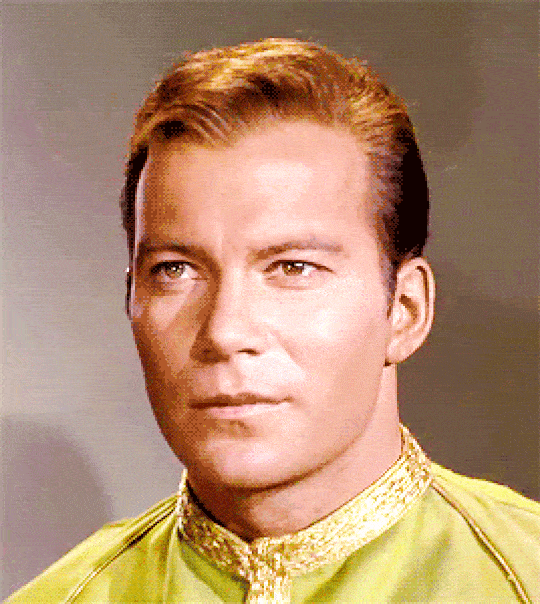
WARNING: This post will ruin you. Like Medusa; look at your peril.
But here is is. It’s the one you’ve all been waiting for.
Kirk bod appreciation #7: The RIDICULOUSLY BEAUTIFUL FACE. A highly technical and academic review.
This is a rather nebulous one. And not, on the face of it (pardon the pun) very philosophical, as it’s essentially about Kirk being stupidly pretty. This post probably will (it will) descend into just screaming and sobbing, but there will be, I promise, *some* meaningful insight into the meaning of ‘beauty’ and textual analysis of its role herein.
Beauty is subjective. But look at him. It’s not just being aesthetic, but it’s the *way* he’s aesthetic. Here I might repeat myself a bit, but stay with me. I may have mentioned before once hearing him described as ‘beautiful in the way women are often described as beautiful’. He is PRETTY. He is indeed often conveyed in the way the women stereotypically (not necessarily rightly) are on screen: perfect, smooth skin; soft, big eyes; luscious lips (his body is sensually curvaceous and furthermore it’s emphasised). He’s not androgynous though. He’s masculine. And yet I still sense what was meant in describing him as ‘beautiful in the way women are often described as beautiful’. He is a rather uncommon form of gender fuckery. He is a form of stereotype-subversion not commonly acknowledged. He seems to be everything at once, ALL THE GENDER; combines whichever traits he desires from those categories, and yet is undeniably a man and masculine whatever the ingredients. HOW IS THIS POSSIBLE, one might wonder. The fact of the matter is, that it IS. And it teaches us something.
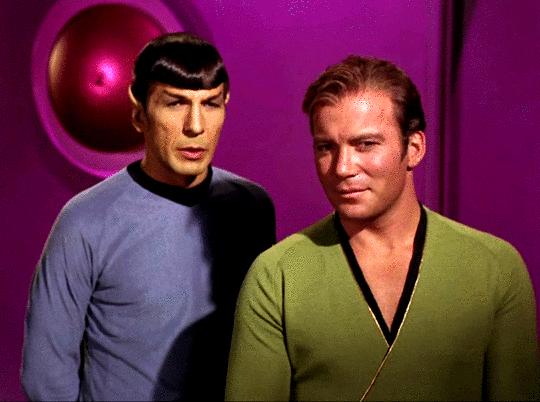
The FUCK. nO. You are not allowed to be that pretty, and you are NOT allowed to look at her like that. We’re trying to have a SENSIBLE DISCUSSION here.
Sorry, that was a non-sequitur / nothing to do with what we learn by Kirk’s embodiment; I was just ambushed by my own gif. Only the control of a Vulcan. ONLY that could possibly withstand this onslaught. And even that won’t hold up forever AS WE WELL KNOW
God.
This is going well, as you can tell.
OK. So, it’s claimed he has Eyes and Stupidly Long Weakness-Inducing Eyelashes. You know, from all that fanfic that goes on about ‘big, sparkling eyes’ and him fanning his ‘long, copper eyelashes’. I mean, yeah right, tropey mc tropeface -
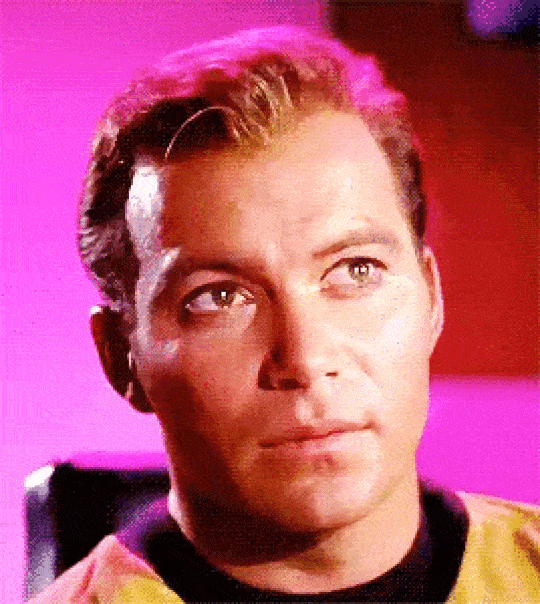
IT’S TRUE. HE IS LITERALLY AN ANIME PRINCESS.
There are some moments where he just BLINKS and, how to describe it...how does a BLINK have that effect. It’s NOT ALLOWED.
...I’m sorry. It IS allowed. All of it. I am not shaming you your beauty. Never change, Jim. Never.
OK. I’m ok. 3 pics down, we can get through this -
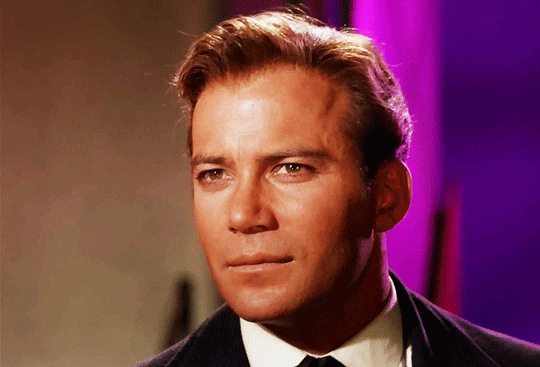
Oh you are joking. Stop.
I don’t understand how anyone can be so beautiful. Life is a lie. Reality is fake -
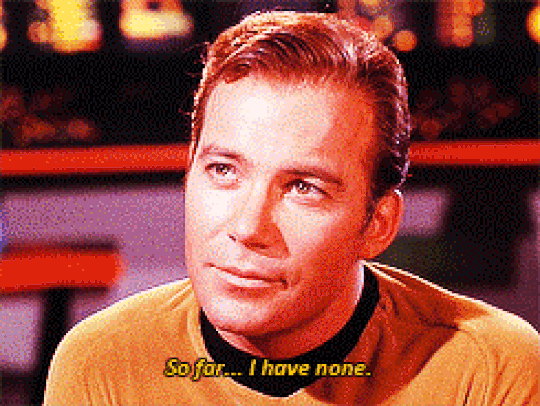
- you did NOT just turn your big anime eyes on Spock. You do know this is why he ran away to PURGE ALL HIS EMOTIONS?
And for that matter, you know when Kirk looks his most beautiful? Literally WHEN HE’S LOOKING AT SPOCK. Spock talks some bollocks and Kirk just sparkles like a fucking angel:
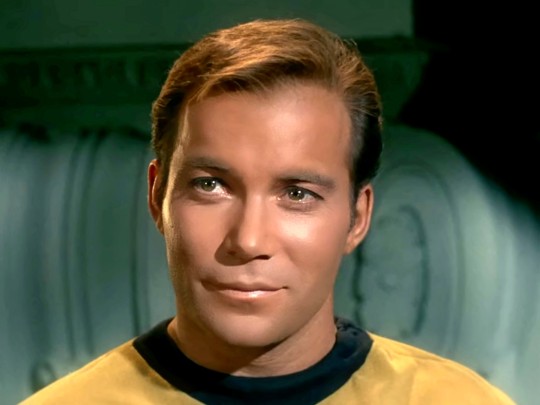
Unbelievable. But utterly undeniable.
Sigh. Moving on.
Oh - someone once suggested I talk about The Lips. Lips are so wonderful aren’t they. So many wonderful things they can do.
And Kirk’s. They’re there in every picture: perfect, rosy, soft and madness-inducing. My advice is just...don’t think about them. But since I’ve been asked to draw attention to them, well, you’ve just sealed your fate. Scroll down at your peril.
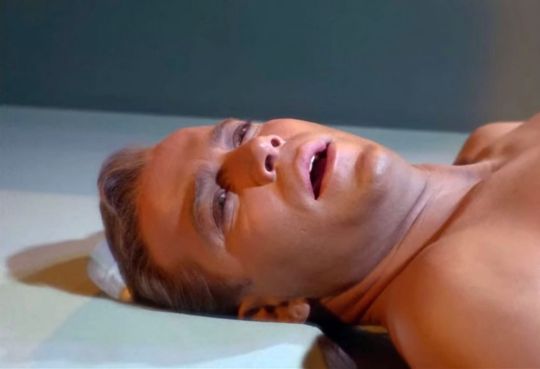
I WARNED YOU.
I am pulling NO punches.
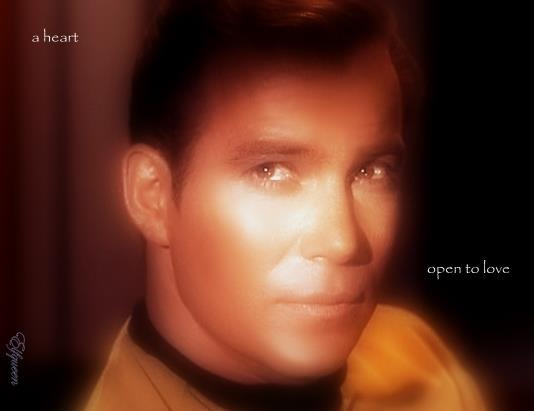
I’ve seen this great meme going around:
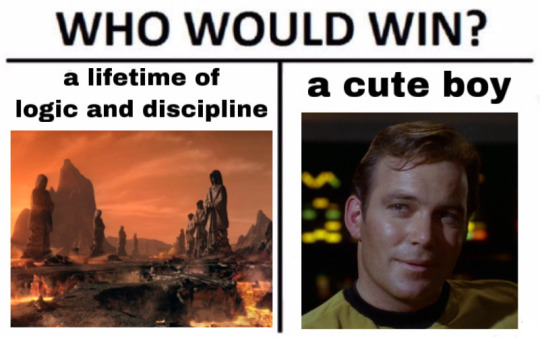
Excuse me though....CUTE?
That’s the understatement of the 23rd century.
Try impossibly beautiful, mind and body: heart of solid gold, soul deep in love with you. Those eyes and all their passion burned into your memories a thousand times over, along with - maybe, suggestibly, idk I’m extrapolating from all the goddamn tension - even the one unforgettable time he laid between lily-white sheets and gave himself to you; every gift of the mind, body and soul - and your ostensibly-forced Vulcan conditioning, that completely ignored how incompatible one part of you was with it, caused so much dissonance that you thought the only possible course of action for you both to survive was to BREAK UP, tear yourself from this beauty and love and sweetness to PURGE ALL EMOTIONS because nothing, nothing equipped you for this; you were set up specifically to fail, and fail hard in the face of transcendental love and beauty by those who rejected such things and didn’t understand you and could never imagine this for you and who instead of helping your beautiful neurodivergent brain flourish taught you to repress and caused you pain and shame and Gol was so hard and Kirk was so sad, so very sad and depressed and hurt and yet he couldn’t stop loving you with a bond so strong he called to you across the stars and Gol was all for naught yet you still didn’t know how to live like this, it was torture, torture until the mind meld with the living machine flashed your BIOS and you knew, love.exe was suddenly running with no errors and he came after you and held you and you held hands and, and -
.
*sobbing*
.
just...give me a moment
.
YOU WONDER WHAT THE SUBTEXT (FRIKKIN’ MAIN TEXT) OF STAR TREK: THE MOTION PICTURE WAS ALL ABOUT???
The pain?? The angst?? The two logical entities seeking contact, love, THIS SIMPLE FEELING? That fucking moment when spock walks on the bridge and the only way he can control himself is to be SUPER Vulcan, while his love gazes at him with those EYES, fucking huge and glittering and hurt and loving?? Is it so much a mystery what memories these two are carrying, what’s behind the searing tension???????
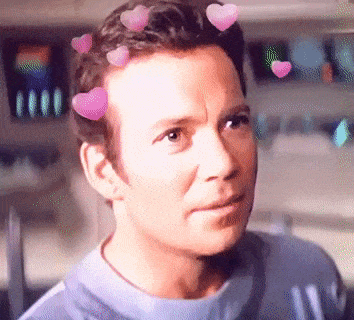
Love him. Love him Spock. Take him in your arms and love him. He’s for you. All for you. Fucking hell guys. The fuck. This movie.
.
ok.
ok I can do this
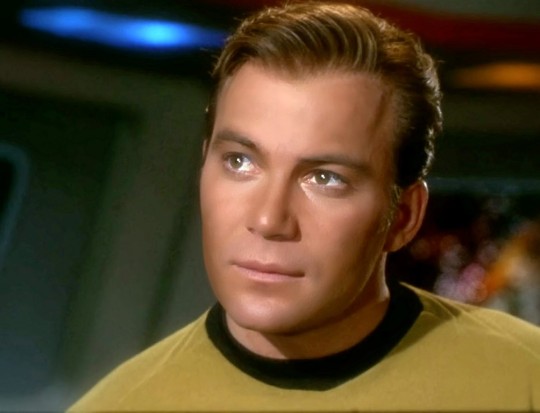
CAN U NOT
those damn eyes I swear
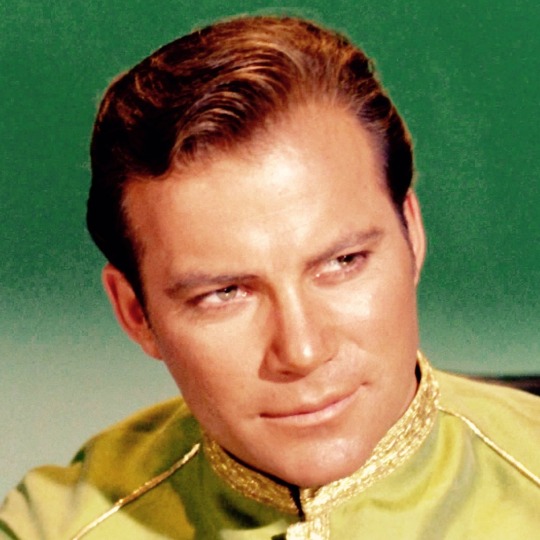
It’s obviously not all just superficial physical beauty. What IS beauty? Narratively we do sometimes find this ‘prettiness’ enhanced and emphasized like the old vaseline lens to set the tone of a scene (he’s vulnerable and delicate, or someone’s indeed in love with him so we see their ‘lens’ on him); but it is somewhat intangible and nebulous and changeable. I don’t think aesthetic beauty, if one deems it so, on its own, would be enough for the likes of Spock (indeed, no woman could charm him thusly); it's about something deeper. It’s about who he is. Who he is inside: the beautiful AND the imperfect. How his good and bad - how his ‘all’ - chimes with Spock’s 'all’. The Enemy Within deals with this, and shows how Spock loves all of Kirk, wants him complete, with both his light and shadow. The beauty of all of us is this totality and variance, not one intangible quality.
I’ll bet Spock’s parents knew immediately. Can you imagine Sarek trying to be a total bitch over Kirk, having heard the rumours and just wanting to have one more thing to reject Spock over, immediately projecting onto Kirk as some blow-up pretty-boy and how Incredibly More Disappointing My Son Is for being Obviously In Love With Stupid Illogical Human Doll Face Bubble Butt Bimbo Captain, and Amanda’s like, stfu, let me remind you Kirk is actually a Fucking Amazing Highly Decorated Starship Captain who Saves Your Life and don’t you DARE resent him just because he’s got tits/ass/tum/lips that won’t quit and is obviously the freakin’ sun Spock orbits. Mr ‘I married a human but that was special because it was logical’ or some bullshit. How is Kirk an illogical choice? I mean literally, Spock is a Science Genius™ on the federation’s FLAGSHIP whose well-matched Genius Captain™ understands him, accepts him, brings the best out of him, helps him fulfil his whole potential and is in love with him in the deepest and purest way and will be his bonded soulmate for ALL OF TIME and that fucking sour-faced bih at the start of that ep, ffs.
Of course Amanda stays in touch with Kirk, adores the fuck out of him, sends him old Vulcan lit on t’hy’la bonds (yes sarek, a T’HY’LA bond, so revered freakin’ poets write about it) etc because frankly her son could do FAR FUCKING WORSE.
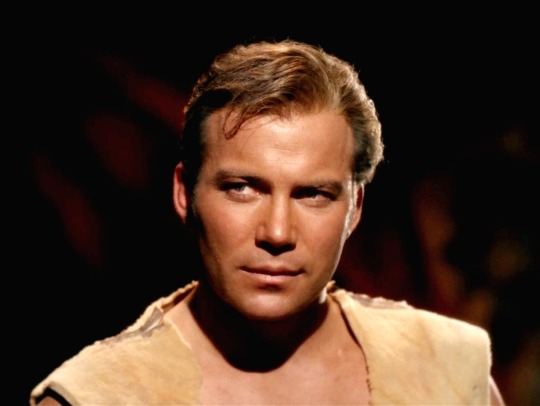
FAR. FUCKING. WORSE.
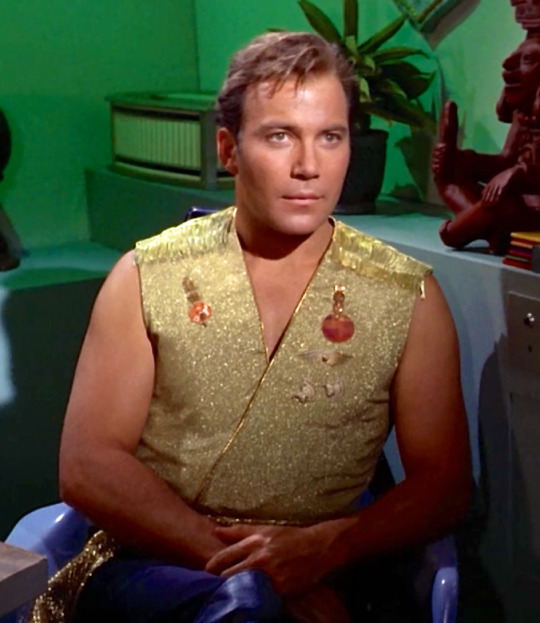
Don’t...just don’t slip the bod into the equation, the face is enough for one post. We’re all in therapy for this already, let’s not relapse.
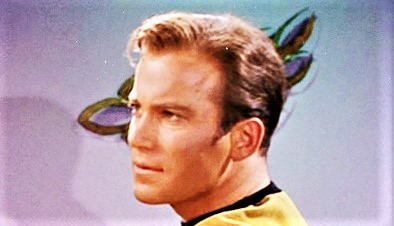
Oh, what’s the use. I’m gonna die. This is it. This is like the Monty Python joke that is so funny it kills you. This man is lethal. I need to stop this thread and purge all my emotions
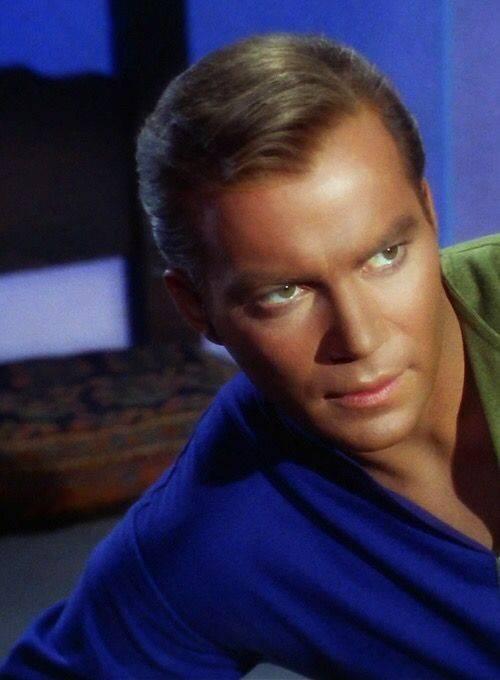
AAAAAAAAAAAAAAAAAAAAAAAAAAAAAAAAAAAAAAAAAAAAAAAAAAAAAAAAAAAAAAAAAAAAAAAAAAAAAAAAAAAAAAAAAAAAAAAAAAAAAAAAAAAAAAAAAAAAAAAAAAAAAAAAAAAAAAAAA
That’s it. I’m dead. You’re dead. We’re all dead.
I hope, however, seeing this post was worth it. See you at Gol everyone.
.
.
The Forbidden Texts, DO NOT READ:
Kirk bod appreciation #6: The Curves. The Front. The...chest. AND THE AMAZING GREEN WRAP
Kirk bod appreciation #5: The Paws
Kirk bod appreciation #4: The Curves. The Back. Poetry in motion.
Kirk bod appreciation #3: Season 3 (Part 1)
Kirk bod appreciation #2b: The Gluteus Maximus
Kirk bod appreciation #2a: The Gluteus Maximus
Kirk bod appreciation #1: The Tum
#long post#star trek#what it's all about#james kirk#jim kirk#captain kirk#spock#SPACE HUSBANDS#love#beauty#jim kirk is beautiful#k/s#spirk#kirk/spock#star trek the original series#star trek the motion picture#tmp#kolinahr#don't do kolinahr spock#gol#the enemy within#t'hy'la#bonded#in love#kirk bod appreciation#protect jim kirk
411 notes
·
View notes
Text
Loveboat, Taipei Book Review

Loveboat, Taipei Book Review by Abigail Hing Wen
This book is solid. The few people I’ve foisted conversation onto about this book have heard me lavishly declare it to be the YA teenie-bop version of Crazy Rich Asians.
And while I maintain that my statement above is still true, the book also contained some other elements that either came across as a breath of fresh air or a polluted cloud of toxicity that made me cough and wheeze.
As for the general synopsis, it’s pretty simple all things considered. You have Ever Wong, a senior who is stressed about college applications, her own future potential, disappointing her parents, and ignoring the unrequited love she has for her best friend’s boyfriend. She also happens to be Chinese-American.
Ever’s identity as growing up Asian in the predominantly white-as-bread state of Ohio is kicked off quite strongly from the get-go. Ever talks about how the said pining of her best friend’s boyfriend could have not been pining and instead could have been her, but that he was unwilling to put up with her crazy Asian parents and their strict limitations.
She talks about how her dad, a revered surgeon in Taipei, has been relegated to pushing medical carts in hospitals in the States for the last twenty years as they wouldn’t recognize his medical degree.
She discusses how she and the only other Aisan kid in her class have an unspoken rule of not looking at each other or calling attention to one another as to not emphasize their Asianness.
As you can probably tell without having me list off a litany of other examples, this book heavily concentrates on race, identity, family, and self-control.
At the beginning of the novel, Ever is a shy, timid girl whose willing to give up her dreams of dancing because it’s what's expected of her after all her parents have sacrificed to raise her in America.
But then her mother sells her black pearl necklace to send Ever to Chien Tan, an immersion program in Taipei where thousands of Asian-American kids are sent for the summer, for the purpose of learning the culture, language, and other specialized skills like Chinese medicine, calligraphy, ribbon dancing and stick fighting.
Ever is reluctant at first, desperate to stay back and find a way to keep dancing, but as her mother literally throws her leotard in the dumpster, Ever knows it’s a losing battle.
So she goes. And she is amazingly transformed.
The rest of the book details Ever’s excursions with finding friends and love, immersing herself in the culture that Taipei has to offer, coming to terms with her own identity and race, growing up, making mistakes, hitting a low point, and then getting back up again to achieve her dreams and fight for what she believes in.
Now, the highlight of this book is definitely the representation, the talk of race and culture, and the actual experiences of Chien Tan, more commonly referred to by the kids who attend as Loveboat, drawn from the author Abigail Hing Wen herself.
Loveboat, as they call it, is an actual program that the author Wen and others attended and still attend. It’s obvious just from reading how much of Ever’s experience is drawn from the author’s herself and that IS ALWAYS AN AMAZING THING.
One of the first pieces of writing advice I Ever (hahahha sorry, not sorry) received was to write what you know. Wen does this and knocks it out of the park. Loveboat comes alive with her writing, flowing from page to page seamlessly.
She crafts it with such care and consideration that you feel like you’re there yourself, down to what the dorms look like with sticking doors, what they serve for breakfast, and the electives offered for academic selections. All of these little details brought such life and realism to the story and it made it an incredibly engaging read.
Add on Wen’s real talk of race, racism, identity, and the struggle for identity, and you indeed have a delectable concoction of raw representation from a person of color who has experienced these things first-hand.
Authors of color and representation in YA of characters of color have improved drastically in the last few years, but it’s still something to be expanded upon, drawn from, and encouraged and explored.
Wen’s story is almost entirely made of Asian teenagers of differing backgrounds and experiences, and it was honestly so nice to not read about another white girl from a white girl. The story was real and filled with culture and struggle, but also beauty, friendship, and acceptance.
All of these things hark back to why I call this book solid.
Now onto why I don’t call this book great.
I legitimately would have preferred if this book focused more on Ever’s identity as Ai-Mei, her struggle between wanting to be a dancer and not crushing her parents’ soul by rejecting the medical career they so want her to be in, and immersing herself in all the wonderful sights, smells, and experiences Taipei had to offer.
Of course, love and friendship and drama should play a role, this is YA after all, but personally I felt like the romance dominated the book almost entirely, shoving the questions of race and identity and struggle to the backdrop of a pretty redundant love triangle.
Which. We’re over the love triangle people, stop writing them.
But really, I understand that the two don’t need to be mutually exclusive, and oftentimes, Ever’s struggle with her race and identity went hand-in-hand with her struggles for romance, but there was JUST. SO. MUCH. OF. IT.
It was like an episode of the Bachelor if the Bachelor would stop casting white people as their main lead. Every other chapter was a pretty cliched rendition of some kind of romance trope: the bad boy that draws, the arrogant boy that predictably has a heart, but also a girlfriend, the so-called girlfriend flying out to Taipei, the evil stuck-up girl, literal running into chests moments, shirtless of course, and so many more to offer.
For an author doing incredible things on the front of representation and real talk about stereotypes, racism, and prejudice, I found her book pretty stereotypical of a YA romance itself.
There were several plot points that were also just incredibly predictable (the nude photos, my god, saw that from a mile away) that made reading this book just a little bit lackluster when I otherwise was really enjoying it.
Unfortunately, the biggest turn-off this book had for me other than the recycled plot and the ridiculous, predictable, rampant love triangle were the characters themselves. They all kind of...sucked.
They aren’t awful, by any stretch of the imagination, but they’re also not special either. Other than the fact that they’re Chinese, Chinese-American, or identify as another minority, and the implicit struggles and nuances that come with it, they were like any other archetypal character that I tend to dislike.
By that I mean that many of the characters I found extremely one-dimensional.
Each character had about two things about them that defined their whole characters.
Now, not to blind you with my nerdiness, but other than books, I also am quite the connoisseur of anime. This book, in a lot of ways, comes across as a printed form of anime to me.
There is a term in anime called Isekai which roughly translates to “accidental travel” and is saturated with shows all about people falling into magical worlds unpredictably.
Additionally (stay with me here), anime is also quite infamous for having very archetypal characters where one or two traits dominate their whole being so completely as that is the only thing about them that comes across.
Loveboat, Taipei in my eyes, is literally a print form of an Isekai. Which is not a compliment.
I really wanted to like Ever, Sophie, Rick, and Xavier, the predominant characters along with a whole cast of others. But I kind of...didn’t. Frankly, there wasn’t much to like or know about them.
Ever’s character was dominated by her love for dancing and her determination to break from her parent’s protective shell, Sophie was a bossy bitch, Rick was Wonder Boy incarnate, Xavier was brooding and artistic-see where I’m going here?
Even the side characters were all identified by one thing-Marc with politics, Matteo with anger, Benji with being baby-faced. I understand that this is one novel and that it’s extremely hard to flesh out characters and unfold nuances and depth, but I personally found Loveboat, Taipei to be lacking in this quality, exceptionally so.
Ever especially I found irritating. On some levels, I understand that Wen was trying to depict her as a flawed character who makes mistakes and learns from them, trying to represent the growth of her character and blooming into herself, but more often than not, I found her selfish, immature, and aggravating.
When you add on that Rick is head-over-heels in love with her (as is Xavier) for reasons that don’t really make sense or are legitimately earned in the story, then the romance feels forced and falls apart, hence me wishing Wen focused more on other elements rather than romance.
This plot contrivance, everyone, is what I lovingly call Bella Swan Syndrome-when a hot guy or vice versa falls in love with someone who legitimately doesn’t deserve it or the love is inorganic or just flat out doesn’t make sense.
Wen attempted the whole hate-to-love thing, which I love, but also which I genuinely think failed here due to the romance being subpar and undeserved.
Combine my lack of any real attachment to any character with the trite that was the romance, but mix it in with the praises above of realism and representation and you end at solid.
Recommendation: If you are sick of the white people, I hear you. If you’ve been looking for books heavily centered on POC characters or written by authors of color, then I’m with you there as well. This book is a great novel for discussions of race and identity and for those Crazy Rich Asians fans out there. However, do not expect this to be the pinnacle of romance, story, or characterization, which unfortunately, falls below average on this one.
Score: 6/10
#loveboat#loveboat taipei#abigail hing wen#poc#ya fiction#YA Books#YA literature#book blog#book#books#teen books#Teen Romance#teen fiction#romance#romance fiction#chinese american#book review#book reccs#ya book rec#book recommendations
28 notes
·
View notes
Text
Digimon Adventure 2020, episode 12 reaction (and over-analysis)
This week, the Digimon remake of “Laputa, Castle in the Sky”, except with a more focused narrative. And somehow something so antithetical to what the show has been thus far ends up being one of its best episodes.
An interesting thing in this episode: twice, we saw Guardromon compare the Mimi he was watching with a picture of her in his archive. Both times, the picture is of her sweetly smiling, completely relaxed, and the reality is of her terrified and confused by the violence around her.
It’s been something that’s building up in the background, I guess. It’s not that Mimi is completely against fighting, but the current situation where they have to fight or otherwise they’ll die (as opposed to the Tuskmon or the Gesomon situations, where it was her choice to get involved) is overwhelming to her. The episode stresses a lot of things about Mimi. She takes charge when Palmon is confused about what to do, she’s quick to assume the best out of whoever she meets, refuses to leave Palmon and run when Andromon is about to attack her (in fact, by how her body is positioned, she’s shielding Palmon from the attack), doesn’t ask for help unless she knows the person she’s with doesn’t mind helping her. All in all, the episode emphasizes all of Mimi’s good traits, and then contrasts her with all the violence Soundbirdmon and Andromon bring, a violence both Togemon and Guardromon claim they will protect her from but fail. And it hurts, and it should hurt.
While this episode borrowed a lot from Studio Ghibli films, it aimed to make them more than just reference and actually use them for their narrative. The ancient technological marvel, starting to decay, buried underneath ancient ruins, is obviously a direct lift, but one that works very well in the context of the Ancient War that looms in the background of the story. It’s implied several times that Andromon, Guardromon and the entire factory have far more history to it than the children and the audience can ever know. Soundbirdmon doesn’t come from outside, it was already in the factory to begin with. The episode identifies all the metal of the factory with death, decay and violence, contrasting it with the healing and peace of nature, yet also makes clear that it doesn’t need to be that way. This is the most alive the world has felt so far, the most filled with history. In short, aesthetically it’s the best episode of the series thus far, with only episode 9 and it’s high-octane atmosphere competing.
When the insert song started playing during MetalGreymon’s evolution, I was worried Lilimon would be once again overshadowed in her debut, much like in the original Adventure. What happened instead was the complete opposite. The same contemplative OST from the episode recaps was played instead throughout her evolution and fight with Andromon, and it fits perfectly, additionally making her stand out even more than if it were just the same song that will play in every episode. It makes perfect sense that a normal action scene won’t be a fulfilling end to the story of violence breaking into Mimi’s life (which is why MetalGreymon can’t win), so of course Lilimon will mostly dodge, Andromon’s weapons completely useless in the face of her. Of course her final attacks won’t physically destroy Andromon, but subdue him, pacifying him for a last moment (enough to restore him to normal, enough for us to see that there was more to him than we thought) before burying him in a coat of nature, temporarily becoming the same death and decay that Andromon symbolized. Lilimon says that it was not just Mimi’s sorrow but her anger that brought her forth, and it feels as if something has been lost. That she does not turn to look at Palmon when she asks if she’s okay is intentional.
Additional thoughts on the episode:
The scene with the Birdramon group was great. We see Sora worried about Neamon’s group, and how everyone else reacts to that. Gomamon is the first to ask (because he’s paying attention to the group), Birdramon already knows what’s on her mind without needing to hear it, Gabumon gives practical advice that doesn’t really address what she’s feeling, but Yamato does address it, showing himself far more empathetic and likeable than in the entirety of last episode. Jou’s sadly just comic relief.
Taichi and Agumon climb down the shaft by holding onto random ledges and hoping they don’t fall. Tentomon just grabs Koushiro and flies down. Tells you everything you need to know.
Koushiro’s computer is starting to malfunction. Wonder what that’s building up to.
MetalGreymon’s evolution sequence was great, and the most interesting thing about it is the Mugendramon shape that surrounds him. Is this foreshadowing something?
Koushiro went weird in the Digimon Enciclopedia section. He wants to smell Palmon when she’s angry or happy? That... okay... okay...
I get why Andromon repeated the “Eliminate” line constantly and agree with the reasoning, but they overdid it.
I don’t know if this is my favorite episode so far, but it’s definitely in the running, along with 1, 6 (Mimi’s introduction), 7 (Jou’s introduction) and 9 (Ogremon’s fight). It’s definitely my favorite of the Perfect-level evolution episodes so far. I probably liked Taichi’s and Agumon’s arc in episode 10 better (if only because bond-based evolutions are so rare in the franchise), but when taken as a whole I far prefer this episode.
Next week, Sora gets involved with the Royal Base of the Beemon line. Hopefully it’ll make up for the mess that was her previous episode.
17 notes
·
View notes
Note
Hi there! Just want to thank you so much for translating for the VE fandom! I've been looking through your VE posts and noticed you mentioned how anime!Gil is completely different from LN!Gil. I agree with you and was wholeheartedly disappointed in the anime. I was hoping you could elaborate more on your thoughts, where you thought anime!Gil and anime!Violet went wrong and how they were different from the anime. Sorry if you've already made a post on this previously. Thanks again!
Hi! You’re welcome!
This reply took me long enough, lol. I haven’t gone too much into detail, or else I’d just end up writing a bible. It still turned out long as hell, though, so I’ve put it under a cut.
I really didn’t know how to begin with this. “Where they went wrong” kinda implies that those two were going right until some point, and that’s just… not the case. They were a trainwreck from start to finish. And it’s kind of impossible to really discuss this without touching upon the massive fails in the writing of the entire show. It does try to convey important messages to the viewers, but mostly with visuals and repetitive lines, never with the actual plot or the characters. You get an inkling of what the story was attempting to do with them, and that initial idea is what seems to stay with most people, because there’s nearly nothing beyond it.
As director Ishidate has stated more than once before, he made changes to the story because he thought the novel was, in his words, “too orthodox”. But watering it down meant watering the characters down too, Gil and Violet more than anyone else. And this results in a show that ironically fails to grasp its own themes and cast — the personalities and conflicts get lost in the details and have to be patched up with excuses that end up displaying how little the show trusts its own audience. It keeps spelling out plot devices and character traits in an almost robotic manner, with very scarce effort put into actually showcasing them in the situations and dialogues. Everyone is too one-dimensional and the main plot line is repeated over and over instead of being alluded in parallels or even just slightly more intelligent exchanges. Animators like Ishidate have grown dangerously used to committing a grave narrative suicide: to give vague and unconvincing reasons for things to be the way they are and expect the audience to take it all as is simply because it was stated there. Everything is oversimplified because they clearly want the viewers to get invested in the emotional baggage of the show, and only the emotional baggage, because they think that’s all we get invested on. They forget that details are necessary for the whole experience.
These problems are recurrent in Violet and Gil, and they never stop. I’ll start with Gil, since he was mentioned first.
Gilbert Bougainvillea is a very complex, humane and multi-faceted character in the novel. What’s interesting is that he doesn’t look like it at first, so he surprised many readers in volume 1 with how caring and endearing he can be. And I mean caring for real. Anime!Gil seemed like a poor excuse for what he was supposed to represent, which in turn made him into a walking contradiction. In the novel, Gil is by far the person that emphasizes the most with Violet, because the two of them are two sides of the same coin. This is where the anime falls short most frequently. They at first look like polar-opposites, but are absolutely not, yet the show portrays them as such. Novel!Gil is gratuitously kind and righteous, and he’s brave and pure-hearted enough to stand by his values no matter what. He’s used to giving up everything for the sake of other people, but he has morals that he holds to the roots of his very being, so he always chooses to donate himself to what he deems as good causes. And once he has his mind set on an objective, he doesn’t mind playing dirty to achieve it, as long as he’s not hurting anyone. That’s exactly the same as Violet, and Gil isn’t the only one who sees himself in her — Hodgins and Dietfried also notice how alike the two are. Novel!Gil relates to Violet on a spiritual level, and he knows first-hand how she must feel. He’s been there and done that. And that’s why she’s his number one priority. His purpose in life is to protect her and keep her in a healthy lifestyle within a blessed working environment and a loving family. Quite literally, all he wants is to make sure that she’s happy, and he’s active and vocal about it. He’s also an unapologetic and unabashed feminist, so he completely approves of her doing anything for a living — she doesn’t need to live her life like an ordinary woman and whatever she wants for herself is fine, as long as it’s not too dangerous.
Apparently, his personality is one of the book aspects that Ishidate believed to be “too orthodox”. He depicts Gil the way you’d expect any male creator to depict a man — a brooding martyr figure who only has a heart of gold in fleeting moments that get replayed again and again in flashbacks to serve as justification for Violet’s undying love. He makes very little strides and there’s a lot of flawed reasoning behind his affection that makes it oddly disconnected, which is the fact that said affection is barely ever there. Gil hardly treats Violet like a person, let alone an equal. Violet is ready to give her life for him anytime, and as we see in the last battle at Intense, he’s ready to cling onto that to save his own life. Ishidate doesn’t shy away from making very evident that he thinks it’s okay for Gil to do only the minimum to earn Violet’s respect and trust, like it’s a given and all he’s required in order to earn her love is to exist. This is very visible in scenes like the one where they first met. Gil seems to shield Violet from the abuse of his brother, but shows next to no distress or even interest over it as he doesn’t even question where she came from or why Dietfried was treating her that way. There’s also the scene where he takes her to one of his family’s residences, and she has his jacket on, just like in the novel… yet he’s letting her walk barefoot in the snow without giving a single flying fuck. He then leaves her side as soon as he instructs the maid what to do with her, not looking back. I also hate that scene where he gets back home and she bumps into him and falls on her butt. He just stares at her and makes no effort to help her back up. But the one I hate the most is that festival scene where he nearly thanks Violet for fighting so well in battle. I mean, she’s killing people for him. She, a literal child, is in the frontlines of a long-lasting war, risking her life and committing mass murder for his sake. That’s literally nothing to be grateful for. Especially not when he’s supposed to love her. And I despise that he only stopped himself from finishing the phrase because he noticed the bruises on her.
Another major defect of the anime was changing Gil’s backstory. Anime!Gil was, by the looks of it, just a rich kid who enlisted simply because that’s the family tradition. And if you take away Gil’s backstory, you take away the viewers’ reason to empathize with him. Why? Because that means he’s morphed into someone who can make choices. Erase any factor that binds Gil to doing what his family and his superiors make him do, and what you have is a grown man with his free will intact. And he uses none of it to help Violet. Anime!Gil was always given the opportunity to say no. He could’ve said no to Dietfried and sent Violet straight to the Evergardens, he could’ve said no to his superior officer and not taken her into the military, or he could’ve at least said no to assigning her to the men’s troops. He didn’t because there would be no story otherwise. Novel!Gil is always attempting to save Violet from the war and from herself, while anime!Gil’s actions beg to differ. And so, anime!Violet’s obsession with Gil stems from the fact that he was the first to treat her remotely like a human being and that, for a long time, he was all she had. None of that fate thing, because it’s also “too orthodox”. But without the fate element and without Gil having no control whatsoever over how he feels about Violet, he’s straight-up a pedophile. If he feels regular romantic love for Violet, who is in her mid-teens, that’s pedophilia right there. This one is my biggest beef with anime!Gil, and I don’t take criticism for it.
Now Violet. Not to be rude, but I see so many people talk about how interesting her anime counterpart is, yet I rarely ever see anyone going in-depth on it. It’s like the way the fans talks about the show. Literally every single person who comments that they liked it always says the exact same thing: “I cried during every episode”. I sort of feel like most of them are just reproducing what they see other people say out there, which is probably what got them interested in watching it in the first place. I don’t mean this with ill-intent; it’s just seriously the impression I get from looking at the tag. I’ve accompanied it since the novel came out all the way back in 2015, and when the show was running, believe it or not, I didn’t really see much of those comments. It started becoming a habit to say it after episode 10, which seems to be the highest-rating episode (the irony being that it was the closest the anime ever got to the novels). Hence why it feels to me like some people just say it on automatic, and I get the same vibe from the fans of anime!Violet.
I’ll just be blunt here: the main difference between anime!Violet and canon!Violet is that canon!Violet was made to be liked by girls and women, and anime!Violet was made to be liked by men. I have already said this before, but Violet is the very definition of independent professional woman in the novel. She’s educated, confident, strong, reliable, altruistic and overall well-versed in at least a little bit of everything. Half of it is due to luck and half of it is her own merits, but all in all, she was created not just to be relatable but also a character that people could look up to. Meanwhile, anime!Violet was clearly made to be waifubait.
I can’t really stress how little thought was actually put into her portrayal and development. We never truly see her internalizing the lessons that she supposedly learns in each of the self-contained episodes. We only ever witness her displaying sudden significant hints of emotion at convenient times, paired to her either repeating what she was told earlier by one of the characters or taking an extremely obvious conclusion to a question that was already half-answered by someone else. Because of this, Violet’s growth process has an unsteady pacing in the anime and mostly feels disjointed. In comparison, novel!Violet is usually not the point of view — she’s often in the role of observer, and we notice through the solutions she comes up with for her clients’ issues that she does have a very humane connection with them. We also notice through the clients’ opinions on Violet that she shows subtle changes at certain specific points, such as smiling just a little when she manages to not only accomplish her duties but also help solve their problems. This makes her more real and believable because, unlike the anime, it presents no abrupt alteration to the essence of her person. She’s growing in her own way, but it’s still easy to tell. It’s also very clever to have Violet be disliked or misunderstood by her clients at first because she’s so aloof and apathetic-looking, but then she grows on them after they actually understand her, and the readers can absorb that from them. I’ve seen many people complain that they can’t really empathize with anime!Violet, but in the novel, the author takes care not to let this happen, and it really doesn’t.
What upsets me the most is that anime!Violet is overly infantilized. We all know that director Ishidate loves her like a father loves a daughter; it’s been said by himself and his colleagues quite a lot. That’s cute and all, but it made her depiction extremely shallow. The biggest problem was making her 14 in the anime. I still struggle to understand what would’ve been so bad with keeping her as a 17-year-old. Sum that up with removing many of her merits and adding forceful childish traits, such as being okay with changing clothes anywhere in front of anyone or pouting when she’s frustrated, and you have the perfect recipe of what waifu junkies like to be spoon-fed with. In my opinion, anime!Violet was a downgraded tragic heroine played in a cheap and boring way to attract tearjerker lovers.
I hope this has covered enough of my take on the matter. ✌️
39 notes
·
View notes
Text
10 Reasons Why Carrie Bradshaw Wasn’t THAT Bad...
Sex and the City is the most elite series I’ve ever watched - and I was so excited to purchase the first season when I turned 18.
I would listen to my mom and my sister gossip about the show when I was younger and feel so left out. But, my mom would refuse to let me watch it until I became an adult. Thank god.
Being an avid fan now, I sometimes scan through Sex and the City articles on the net, and can’t help but notice dozens of articles filled with ‘Carrie’ slander - which kind of makes me nervous.
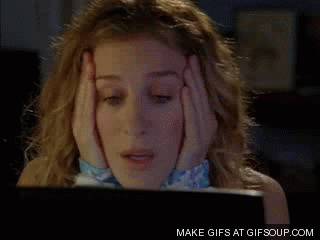
Although it was true that years ago girls were labeling themselves as the ‘Carrie’, ‘Samantha’ and ‘Charlotte’ of the group - the serious and less glamorous friend got stuck with being a ‘Miranda’; it is kind of an insult now to be deemed as a Carrie.
As we all matured, we realized that being a Miranda is amazing and we should all strive to be just as successful - but Carrie Bradshaw is still a valid character and I’m here to prove why the “sexual anthropologist” is not all that bad.
Now before I dive into why I totally get Carrie Bradshaw, I would just like to point out before hand that I am aware that she is just a fictional character and hopefully you are too. If you are not informed, then I apologize for this harsh revelation. However, let’s continue.
1. She was average looking
While we can all agree that her physique only gets stronger and leaner throughout the series, she was still not exactly perfect looking. Despite her fit body, she was not model like or necessarily tall. She did not have a perfect nose. She did not have the biggest ‘lady parts’. She did not have the plumiest lips. She did not have perfect facial symmetry.
But, she was okay with it. And has mentioned that by the age of 30, she was over being uncomfortable with her looks and decided to move on.

Despite constantly bumping into models and having to accept that men can be total “modelizers” - especially in the capital of the world aka manhattan, she chose to embrace her natural beauty, which in turn has allowed her to walk the runway in her underwear.

2. She was selfish
Yes, the new trend is to be selfish and say no - because that is ‘self love’.
If that truly is the case, then there was no denying then that Carrie was selfish throughout the series.
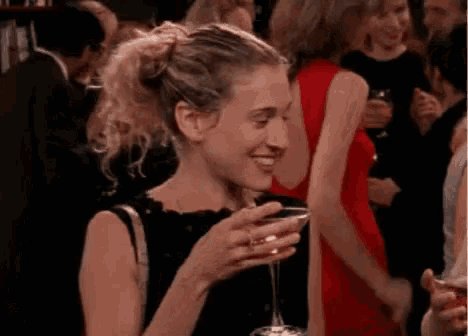
As human beings, we are selfish by nature. But since we now identify ourselves in societies with expected norms and values, being selfish disqualifies you sometimes from your environment. To avoid being lonely, we try to let go of being selfish or at least hide our selfish traits.
Unfruitfully so, our selfish instincts at times fail us - exposing our true colors. And whenever that happens, people aren’t too afraid of pointing out what you did wrong. It doesn’t make us necessarily evil, just makes us human.
To avoid being Freudian in this post, let’s just sum up that Carrie is harmlessly selfish at times - that includes being late to every event, asking her friend Susan Sharon if she could trade in her cashmere sweater birthday gift for cash, accepting a pair of 600$ shoes from her other super rich friend, and cutting off Charlotte’s possible infertility problem discussion to talk about her Manolos.

The list goes on, I mean - this is just classic Bradshaw behavior. However, this character cannot be deemed as bad. She was just under the spotlight, and if we were under it too, we would find out that we do have these moments as well without realizing it. We are not perfect. However, Carrie does reflect on her mistakes often, which is something we should be doing more.
Sometimes, her selfish tendencies can really get out of hand.
It was not okay when she got angry at Charlotte who did not offer to lend her money after she blew it all off on Manolo Blahnik shoes instead of rent. It was not okay when she threw away Aiden down the drain. It was not okay when she slept with a married man, even if it was ‘Mr. Big’.
We cannot shame her though because we all have hidden skeletons in our closets...it’s up to you however to peak in and see which faults make it or break it for you.
3. She was a working woman
No offense to chastity ball princess Charlotte, who wanted to be a housewife to any rich man who crossed path with her, Carrie Bradshaw was by all means an ‘all star’ business woman. Despite being unconventional unlike Samantha Jones (PR executive) and Miranda Hobbes (Harvard-graduate Lawyer), Carrie Bradshaw was a restless woman that worked in multiple fields all at once despite being so undermined.
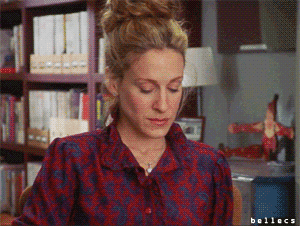
She had so many tasks to tackle all at once while juggling multiple projects. She ran around between the fields of Journalism, Content Marketing and Public Relations. She was able to get invited into all the ‘fabulous’ events and meetings because of the hard work she invested in all by herself as a freelancer who lived in a huge place like New York. Carrie finally reached her goal at the age of 40, which was working at Vogue. She even wrote multiple books as well.

4. She was unconventional
Despite the show running in the early 90s, Carrie Bradshaw decided to be a sex columnist. She never gave up on her weird unconventional job and was proud of her career despite the looks or comments people would make. She had a weird exterior in addition to how upfront she was about the physical makings of life.

In addition, Carrie did not believe in marriage until she became a fiancée at the age of 40. She traded in a ring for a pair of shoes and a walk-in closet, unlike most women, who would rather get married in their mid 20 to early 30s with a huge rock on their finger.
5. She was struggling at adulting
Carrie Bradshaw had a deluded concept of adulting that at least most of us had or still struggle with. She was not a healthy adult with financial stability and a well thought out regime. However, she still managed to be fabulous.

She had poor dieting habits, which made her sometimes skip dinner to buy Vogue instead. She believed that shopping and gossiping were the best types of cardio. She was not the cleanest and had a messy apartment at most times. She did not care about the way her living space looked like, which she later on freaked out about in fear of being judged as an imperfect adult according to Mr Big. She paid so much on shoes that she could no longer afford her rent. She believed that investments must be seen in her closet. She drank at least six dollars worth of coffee per day. She would smoke and drink way too much for a thirty year old woman.
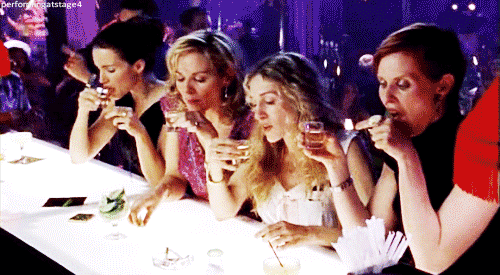
6. She was a good friend
Carrie Bradshaw had so many friends that it almost put her PR bestie Samantha to shame. To be honest, Carrie may have not been a perfect friend, but she was as good as it gets realistically.
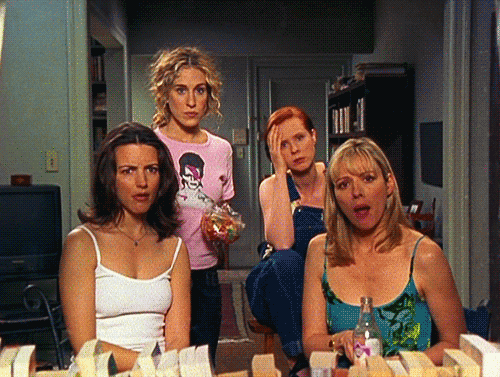
What made her so realistic in her friendships was her ability to be there for most of her friends’ hardships. She had her ups and downs with her empowered female group because sometimes they would feel like she was too problematic and vice versa. For the most part, it is impossible to be as passionate to your friends as you once were the first time you guys met. But what makes a friend a good one is that they never voluntarily try to find excuses to leave you behind.
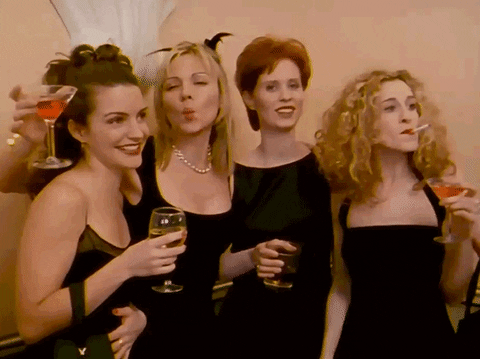
Carrie’s love towards her friends in her good and bad times showed that she valued them like family.
7. She was lost
Carrie was probably more lost than she would have liked to be. She had a tendency to dwell on what should have been and could have been. We all have regrets and sometimes she voiced hers out more than other characters within the show. She would sometimes yearn over the years that passed by her. She even went to extremes such as dating a college boy just to remember what it was like to ‘just kiss’. Rookie Mistake, Carrie.
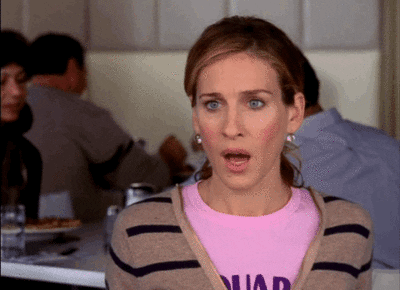
Just like Carrie, as time goes by at any age, we look back at the spur of events that created our timeline and take note sometimes of which events we deem as either life-changing, traumatizing or both.
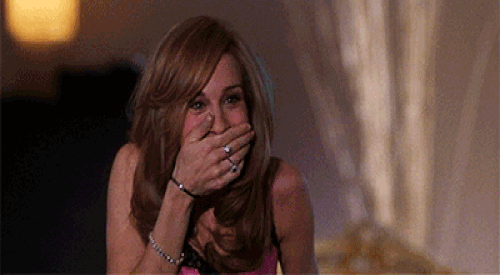
8. She was experimental
She may not have been as promiscuous as her friend Samantha, but she was unarguably adventurous in all aspects of her life. Although the most obvious aspect may have been her outfits, her wild colors and funny textural accessories were just a preview on how eccentric Carrie Bradshaw truly was. She mentioned that her younger years were a genuine pursuit of fun in every shape or form, which most twenty-something-year-olds cannot deny.

She emphasized that she fears living life as a cautious person because of the hurt she has endured. However, she truly defined throughout the show what it means to be eccentric, empowering the ones who fail the experiments of life to get back on their feet.
9. She was flawed
Carrie Bradshaw believed in the glass half full rather than half empty throughout the series. Despite being unbearably flawed to the point where her friends no longer wanted to listen to her problems, she decided to see a shrink which is something that would have been especially socially-unacceptable in the 90s. Carrie still overcame her mental issues and found other remedies which in turn has led her into accepting the way things played out.

As we grow up, we, like Carrie, need a little bit of help in order to realize that temporary issues will fade away into lessons and the permanent ones that are out of our control can be accessorized into our lives accordingly to the way that we want it to look like.
10. She was in love
Her love towards Mr Big was illogical - almost completely insane. But what made her character so special was the fact that she never continued her relationship with Aiden because she knew deep down that it was Mr Big all along and never gave up on it; despite all the signs that kept telling her that he was bad for her. He was at the time indeed bad news, which made her feelings towards him fluctuate between love and hate.
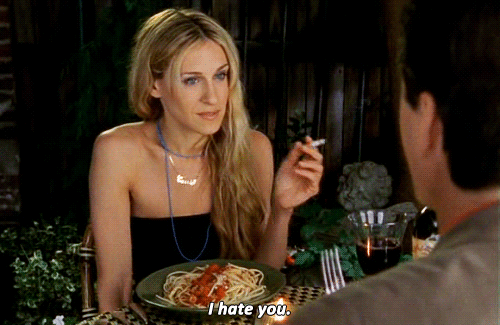
Now, the psychology behind her and Mr Big does not justify why you should call your ex right now so put your phone down, but it is something to think about.

Carrie took the road not taken for most women, especially during the 90s where gender roles in love where still a bit rigid. While it is true that it is always easier to date lovers who make the effort to chase you rather than pursuing it yourself, the easiness does not create the ‘fairytale love’ that most of us strive for.
Carrie once described her love towards him as a crash rather than a crush. But if something deep down is telling you that someone is your person, shouldn’t that account for something? Shouldn’t we all just go for ‘ ridiculous, inconvenient, time-consuming can’t-live-without-each-other love’, and get it right just like she did?
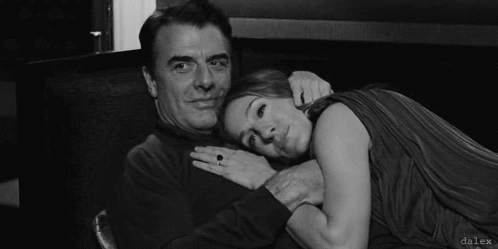
- Nina xx (yasminasayyid)
#carrie bradshaw#Sarah jessica Parker#satc#sex and the city#sex and the city 2#Samantha jones#Miranda hobbes#quotes#mr big#Charlotte york#chris north#Cynthia Nixon#kim cattrall#kristin davis#new york#Manhattan#new york city#vogue#cosmopolitan#beauty#buzzfeed#betches#media#psychology#content marketing
58 notes
·
View notes
Text
Characters
Zoey To no one’s surprise, Zoey didn’t do much in this book. And that should be justifiable! She just learned that her mom died, right on the heels of Jack’s death and the complicated separation into a second House of Night. Zoey taking a more passive role in this book should feel natural and be easily sympathized with.
But, like with Awakened, Zoey has always been a very passive character, so this doesn’t feel earned or even different from usual. She complains about and resents her responsibilities just as much as she always has – I’m not even sure I can honestly say she cries more, because she does a lot of that in past books, too. As cold as it sounds, grief comes across as another excuse for Zoey to sulk and moan and refuse to address her problems until they become unavoidable.
And boy did she avoid problems in this book! Or, rather, she avoided easy solutions and obvious paths forward. Nyx sends her a vision of her mother’s spirit entering the Otherworld? Zoey doesn’t contact her Grandma or say much of anything to anyone about it. Zoey sees Stark seemingly possessed via the seer stone, including a moment where it looks like he might attack her? Nope! Not gonna talk about it, try to make sense of it, or make any effort at intervention and preventing future incidents. Zoey knows Aurox is old magic, a servant of Neferet, and generally feels super weird around him? Well, better not look through the seer stone to find out what exactly he is because that sounds stressful and scary!
This is bad enough on its own, but this sort of inaction is supported (even mandated) by other characters. Lenobia, for example, fully supports Zoey choosing not to look through the seer stone at Aurox, and dismisses what Zoey saw with Stark as some sort of residual affect of being in the Otherworld. There’s no push for Zoey to investigate or even really worry about these things – that’s inconvenient and uncomfortable for Zoey, and therefore it’s unfair and unreasonable to expect her to actually do anything.
None of this is meant to be a flaw on Zoey’s part, nor does she ever face real consequences for this sort of inaction or apathy. Zoey failing to accomplish anything isn’t a matter of character development; it’s a plotting technique. The author didn’t want the mystery of Aurox to be resolved until the climax, so Zoey refuses to look at him through the seer stone. But it doesn’t matter if these writing decisions were plot-driven or character-driven – the end result reflects on the character, and it reflects poorly. Which is stupid, because all the author had to do was come up with an actual reason for Zoey not to use the seer stone (maybe every time she has used it has backfired or hurt her in some way), or outside interference that prevents her from using it or prevents it from working when directed at Aurox.
Stevie Rae For the last several books, the central conflict of Stevie Rae’s arc has been her and Rephaim’s relationship, because they’re meant to be enemies and had to keep their relationship secret. Now that Rephaim has been gifted with a human body from Nyx and they no longer have to hide their relationship, her personal conflict is… still centered on Rephaim.
This doesn’t even accomplish anything or create an avenue of growth for her, either. Stevie Rae’s conflict is being sad about Rephaim turning into a bird right before she goes to bed, and being frustrated that he wants to have a real relationship with his father. Both these points become overdone very quickly, and are resolved with no real affect on Stevie Rae’s character. She just sorta… decides not to be upset about Rephaim transforming anymore, and all their arguing about Kalona is for naught because – surprise! – Kalona was a good father deep down this whole time. (We’ll get to that.)
One could argue that these two character conflicts center on Stevie Rae’s protectiveness of Rephaim and fear of losing him now that he’s finally hers. Which… okay. There isn’t much build-up or background for this to make sense with, but it’s not an inherently illogical concern for her to struggle with. The problem is that she 1000% contradicts this when it makes the least sense. Aphrodite has a vision foretelling Rephaim’s death, knows the exact setting and situation in which it will happen, and Stevie Rae steadfastly refuses to listen to this warning and insists that Rephaim still has to accompany them to the ritual out of completely baseless paranoia that he’ll get hurt if he’s left alone in the tunnels.
So far, in this girl-power, matriarchal, feminist fantasy series, two of the most important female leads have absolutely no agency on the plot, and one of them has all her conflict centered around the problems of her boyfriend.
The Twins Actual separate arcs! Sort of.
Shaunee apparently has a tumultuous relationship with her parents, especially her father – but we literally have no hint of this in previous books. She talks about her parents uncritically, including reference to them visiting her, and had no qualms about calling people out for being messed up by bad relationships with their parents (especially Aphrodite).
Erin is suffering the early stages of complete and utter character sabotage. She’s shown as cold, shallow, and unfeeling, but has never (intentionally) been written with these traits previously. She was written with the same traits as Shaunee, who is portrayed in an extremely positive light.
Erin, or course, doesn’t understand Shaunee’s sympathy toward Rephaim and his conflict with his father, and had no idea about Shaunee’s similar familial problems. This creates a rift between them, which could have been interest, but the conflict is given way more weight than it warrants, especially because the Twins have barely been present in the last several books. It just becomes too drawn out and melodramatic, which results in it having no actual emotional impact.
Also, it ends up pointless, at least to the overarching plot of this book. Their falling out has no impact on the reveal ritual or any other aspect of the climax.
Damien Damien still doesn’t have any real role in the plot, personal arc, or any sense of agency within the story. For this book, he was sort of a parallel for Zoey’s grief (though obviously Zoey’s grief was much more profound than his, because she’s Zoey and that’s how the world works). I mean, honestly, it felt like that was his whole purpose – to be tragic.
This series has certainly delved into the trope of Gay Tragedy before – Damien has a terrible relationship with his parents, he was bullied, the last book had a Bury Your Gays subplot, etc. – but it feels extra emphasized now. Previously, Damien was at least allowed to be fabulous and sassy and fashion-savvy about half the time he was being stereotyped, but now the majority of the focus on his sexuality is on how tragic it is that Jack died. It functions as an extension of the Bury Your Gays trope, and it just makes the whole situation worse.
That’s not to say that we aren’t still treated to other gay stereotypes, of course. Damien is, as always, called Queen, and Jack is in the gay section of the Otherworld doing arts and crafts and watching Project Runway. But Jack dying created a void in the series’ staple stereotypes. Rather than let that be, the author decided to fill in the gaps – by having Damien suddenly take on Jack’s traits, such as carrying a “manpurse”, even though that was never part of his character previously All this tells me is that P.C. Cast sees her gay characters as monolithic and interchangeable, which is not a good look for anyone.
Stark Remember the previous book, when Stark’s one point of growth was about embracing his affinity and not letting his fear of his Dark side hold him back from his Goddess-given gift? Well, forget all that! There is one single instance where Stark has his bow at the ready, but he doesn’t actually fire it once in this entire book – not even during the climax, when Aurox shows up in bull form and tries to kill Rephaim. In fact, based on descriptions of that scene, Stark doesn’t even have his bow with him! No, instead he’s using a sword, which he is significantly less skilled with and – oh yeah – cannot instakill someone at range with.
But, as with Zoey and her refusal to use the seer stone, this isn’t meant to be a reflection of Stark’s character or personal conflicts or anything of that sort. It’s just the author finding excuses to prevent quick and simple solutions to the problems she has laid out in the book. It doesn’t matter that this completely contradicts Stark’s growth in the previous book because this isn’t supposed to have anything to do with Stark; he’s collateral damage to the needs of the plot.
He does have another subplot, though, which was introduced in the previous book. Kalona is still using the sliver of soul he gave to Stark to enter into his dreams and manipulate him. He mostly uses this connection to spy on Stark’s dreams and vicariously have sex with Zoey. This is built up as something very dangerous, considering the first scene in the book is Zoey seeing a shadow overtake Stark’s form and make him summon his sword. If Kalona can do that to Stark, then that spells huge trouble for our heroes – especially Zoey, who shares a bed with him and is therefore close to him when he is most vulnerable to being controlled.
But this subplot is just… dropped. Nothing comes of it. Not even the tension and unease it creates between him and Zoey amounts to anything. They have a couple spats, he feels tired and grumpy for a while, and then it’s over with no real consequence.
Rephaim In talking about Stevie Rae, I already talked about Rephaim’s core conflict: wanting his father’s love. It gets repetitive extremely fast, isn’t handled in a very interesting or thoughtful manner, and ultimately ends with this weird feeling that abuse should be forgiven as long as the parent tells their child they love them.
We also get to see Rephaim navigating life as a human for the first time, which is… entirely squandered. We get no culture shock, not displays of oddities or misunderstandings, no struggle with arbitrary rules of the classroom when he attends school for the first time, etc. No, Rephaim adapts flawlessly. The conflict for this portion of the story instead comes from ~*bullying*~. And by bullying, I mean Dallas being mad at Rephaim for winning Stevie Rae’s heart and the two of them fighting over her, because this plotline has not been done to death in this series and is a great girl power message.
Kalona I already explained the pointlessness of his soul-connection to Stark and how unceremoniously that subplot is dropped without consequence, so I won’t get into that too much here.
What’s more important for this book is Kalona’s relationship with Rephaim. Or, more importantly, how much he misses having Rephaim at his side and wishes for him to return. This is framed as nefarious. But Kalona doesn’t actually do anything bad or cruel to this end. He has Nisroc and Maion politely speak with Rephaim and ask him to be a spy, he mopes constantly, and he borrows a cell phone from Shaunee so he can call his son. He even agrees to a truce with Zoey to help her take down Neferet!
None of this feels villainous, but the book also isn’t doing enough work to make him truly sympathetic. For one thing, the whole point of his “redemptive” moment at the end of Awakened was that he gave Rephaim the freedom to make his own choices and pursue his own path. The importance of this moment and its push toward his ultimate redemption is shown by him shedding a single white feather. But if Kalona immediately goes back on his word the next day and starts trying to pressure Rephaim into returning to his side, then what was the point of that? He’s just completely counteracted the small amount of growth he showed in the previous book.
But wait! There’s more! In my final thoughts for Awakened, I also talked about how that scene didn’t even make sense as a redemptive moment because Kalona’s role as a villain was never about him being a bad father; it was about the atrocities he committed against the Cherokee. Well, this book continues that! His big moments at the end are a) him not hitting Nisroc and thanking him for his support and loyalty, and b) apologizing to Rephaim, asserting that he will always be his son, and crying over his body. But having his role as a father be the locus of his change toward good completely dismisses all that he did to the Cherokee, effectively rendering their deaths and suffering unimportant. You can’t make up for crimes against humanity by telling your son you love him.
He also declares himself the new Sword Master of the school and swears a Warrior’s Oath to Thanatos for… some reason. Becoming Sword Master is one thing – he was a Warrior to Nyx and is skilled enough in combat that it’s not unreasonable to say he could pass those skills on to students – but why swear an Oath? Dragon didn’t do that with Neferet, so why should Kalona do that for Thanatos? He barely even knows her and this is not a casual or reversible bond to form.
Aphrodite As with the previous book, Aphrodite doesn’t offer anything to the story except abrasiveness and bigotry. The casual homophobia is there, as always, but now we have the added bonus of ableist ranting! Better yet, it’s clearly done vicariously for the author, given how closely it parallels a similar rant the author posted on her blog months before this book came out.
I mean, I guess she technically also contributes to the plot through her vision, but… Well, no, she doesn’t. She has a vision, everyone makes a big deal about it, and then it’s promptly ignored. The message of the vision was clear: Rephaim should not go to the reveal ritual at Grandma’s farm. But no one heeds this warning, so Rephaim still goes with them. The vision could have been completely omitted and nothing would have changed. Which just makes Aphrodite worse than useless in this book.
Erik There’s literally no reason for Erik to be in this book, and certainly no reason for him to have an entire chapter from his perspective. He Marks a fledgling and she’s red instead of blue. That’s it. That’s all he offers. As soon as that’s done, he vanishes from the book.
And it’s not like Shaylin ends up being super important to the book, either! She’s built up as significant, what with her affinity for True Sight and Kramisha’s latest poem mentioning True Sight, but that turned out to be a very nonsensical misdirect. All Shaylin actually does is state blatantly obvious things about people by reading their auras. She doesn’t even participate in the reveal ritual, despite the poem implying that she’ll be important!
But Shaylin is still a very special character. She was blind, giving us about 2.5 minutes of disability rep before being magically cured when she’s Marked. And of course she’s grateful and this is the greatest thing ever and she never wants to go back to being blind because everyone knows living with a disability must mean abject misery, even though she’s been blind most of her life and should have found it extremely disorienting and disconcerting to suddenly be able to see again. There’s some lip service paid to the idea that Neferet is cruel for saying Shaylin was Marked red because she was “broken” as a human, but it doesn’t really land because the way this whole subplot is constructed seems to agree with her. Shaylin’s blindness isn’t just something that made her different – it’s a hardship that vampyrism freed her from. The fact that there isn’t a convincing alternative explanation (“Erik said the words wrong” doesn’t make any sense) only makes it more believable that, in the logic of this series, Shaylin was broken due to her blindness and her being Marked red is a consequence of that brokenness.
Neferet I consistently wonder if the author ever had a clear idea of what she wanted for Neferet. Obviously she planned for Neferet to be the villain, but to what end? What are Neferet’s goals? What does her ideal future look like? What motivates her? You can have a simplistic or clichéd villain and still tell a good story, but neither of those terms exactly describe Neferet because I don’t know what she’s trying to accomplish or why.
Now, this book does declare her evil plot: to create such chaos and disruption that Nyx herself must intervene, thereby defying her golden rule of free will and non-interference, which will lay the ground work for Neferet to oust Nyx and become a goddess in her own right. But this just doesn’t work. For one thing, where was this desire for chaos in previous books? Even as recently as Tempted, Neferet sought the most ordered possible avenue for power – the High Council. She was using official channels to achieve official power, and she was already calling herself Nyx Incarnate in the process. Then she wanted to start a war with humans as means of destroying the High Council, which would create a power vacuum for her to fill so she could start a war with humans. This didn’t make any sense, because the author didn’t think it through or, like, say it out loud in plain terms, but it was an idea that still clearly involved using power structures to her advantage. Now she just… wants to create general confusion and unrest.
And it’s not even like she creates chaos effectively. Like, I could buy the argument that war is a form of chaos and that pursuing chaos in its own right is a natural extension of that idea, but that’s not even remotely close to what Neferet tries to do in this book. Her idea of chaos is bringing human staff into the House of Night to cause confusion and unrest, and inviting the rogue red fledglings back to classes so they can butt heads with Zoey and co. That’s not chaos; that’s being a mild annoyance!
Neferet is supposed to be intelligent and calculating, but this comes across less and less as the series goes on, and the subplot with Aurox is a prime example of that. She was told in plain terms that Aurox would be flawed because she failed to provide the appropriate sacrifice for his creation. So when Aurox starts to show shortcomings (such as feeling emotions or saving Zoey from a falling branch), Neferet should logically conclude that this is a result of the flaw in his design, right? NOPE! She either ignores it entirely or assumes it’s part of a clever scheme the white bull concocted to help her.
Then there’s the fact that she’s just a really ineffective antagonist, which is only made worse by her reliance on Darkness. Succumbing to the temptation of the power of Darkness was supposed to make her stronger, more formidable, but through most of this book Neferet was consistently unable to do what she wanted because Darkness refused to obey without an appropriate sacrifice. And I mean, like, Darkness refused to do very simple acts, often in contradiction with past events in the series. Neferet can’t request that a branch fall from a tree and crush Zoey because Zoey is a High Priestess and requires an equally powerful sacrifice to kill – even though Neferet killed Shekinah, the High Priestess of High Priestesses, with absolutely no issue. It’s hard to feel intimidated or tense about a villain who just can’t do anything because of the restrictive nature of her powers, especially when you contrast it with the seemingly limitless nature of the heroes’ powers.
Nyx
Why continue giving Zoey visions when she consistently dismisses them/assumes they’re just a weird dream? Would it not be more effective to appear before Zoey in a vision or a dream and just directly, plainly tell her what’s going on? I’ve harped on the ineffectiveness of vague visions and messages before, but it’s especially egregious in Zoey’s case because she so consistently ignores them. Plus, Nyx has appeared and spoken directly to Zoey before, so it’s not like there’s no precedent.
Why trap Zoey and her friends in the circle after they had completed the reveal ritual? Why require a death sacrifice for that ritual? How does this make Nyx any different from the white bull, who also requires death sacrifices for rituals but is upfront about it and won’t allow the ritual to be completed or power to be granted before the sacrifice is made?
If Nyx was trying to tell Zoey she should use the seer stone in the poem Kramisha wrote, why did she reference True Sight? A Seer Stone and True Sight are completely separate things.
Nyx speaks directly through Aphrodite at the ritual when Aurox is attacking Rephaim, but she doesn’t actually help. She just warns them not to break the circle. Why does Nyx have to be the one to intervene and say that – everyone else present, especially Zoey and Thanatos, should know that leaving the circle will ruin everything they’ve done thus far and prevent the reveal ritual from being completed. If Nyx was there to help them, why not grant them some insight or ability to stop Aurox, or at least help him revert to his natural form? Or, better yet, why not make it so they can at least call on their affinities from within the circle to fight Aurox and protect Rephaim?
Nyx thinks religious headscarves are so inherently oppressive that she would use them as punishment by having a sexist, abusive man reincarnate into the body of a Muslim woman. But she lets Rephaim have a human body after years of rape and murder because he loves his girlfriend and said he would be a good boy now. This is completely contradictory, not to mention Islamophobia.
Just like Nyx gives feminine affinities to gay men, she has a whole section of the Otherworld dedicated to being Gay Stereotype Heaven, apparently.
Nyx will show up to forgive Rephaim, but she won’t publicly denounce Neferet, nor will she appear to declare that Neferet is lying when she claims that Aurox is a gift from the Goddess.
7 notes
·
View notes
Text
I’ve mentioned a few times that Season 6 is the last season I’ve seen all the way through. Back when I was first watching the show, I stopped at 6 mostly due to getting distracted with other things. But I also felt at the time that Season 6 just wasn’t as good as the first five. That’s about as much as I thought about it at the time; there were a handful of episodes I really liked from that season, so I’d watch those now and again, but for the most part, I avoided Season 6 and didn’t think much about it until this rewatch.
...Oh, God.
Season 6 is bad. “If Season 8′s the breaking point for most hardcore fans of this show, how much worse does it have to be?” bad.
I don’t even know where to start with this. How about with some holdovers from Season 5 that have lost all context - Kitty and Red’s personalities and dynamic. Kitty was more emotional in Season 5 and started hitting the bottle? It was motivated there - she started menopause, lost her father, felt empty-nest syndrome full force, and struggled to cope. Now, that erratic behavior’s divorced from nearly any motive (menopause gets mentioned once) and cranked up to eleven, and she becomes an alcoholic with wild mood swings. Red was crankier in Season 5? Motivated - he struggled to help his wife through a difficult time in her life and felt treating Eric harshly was for his own good, something he came around on by the end of the season. Now, though his heart attack could (and does, at times) motivate some of his behavior, he’s just generally more unpleasant and detached from everyone, and much less supportive of his family. Their marriage was complicated in Season 5? Motivated here by their respective issues and the stress of Eric’s engagement. Now, Kitty’s always high-strung and on Red’s case, and he’s always resigned to a strained marriage that he barely puts any work into.
But they don’t come off so bad - so bad - compared to Eric and Donna. I know some fans of the show don’t love that the engagement happened when it did in Season 5, or at all, but I like it. I’ll admit I may have a soft spot for the idea, having two best friends who got engaged in high school, married early in college, and are still going strong a decade later. But I also think, excepting one or two episodes that retread earlier conflicts (something almost impossible to avoid in this kind of sitcom), Eric and Donna come across in Season 5 as a couple ready to step into the future, live their lives, and prepare for married life together, and they put up a united front defending their decisions to their parents.
That resolve and maturity is still there at the very beginning of Season 6, but it slips away quickly, and by the end, their whole dynamic is just awful. The established relationship is swapped out for a lazy comedy cliche - the woman is a stiff nag who withholds sex and is always pushing over menial domestic crap but is always right because...well, because, and the man is a henpecked, horny moron who’s always doing stupid wacky crap and making a mess of everything but gets forgiven all the time because...well, because. And then to have a couple who are well-established - and even say so, in the show, as talking about everything - end up at a place where one buys a mobile home without asking the other, one walks out on their wedding without telling the other why until it’s too late, and the catalyst for breaking off their marriage - Donna suddenly wanting to stay in Point Place, which is justified by her claiming that seeing the world was her plan “when she was single” when she and Eric were still planning just this season to move, and Eric making a decision to “save” Donna from “ruining” her life - makes absolutely no sense.
As an individual character, Eric is completely derailed this season. Season 5 may have started emphasizing his nerdiness compared to earlier seasons, but only so much; Season 4 had started down that path, after all, and Eric’s still Eric in Season 5, with a good range of stories all tied in to his relationships with Donna and his family. But after his decision to stay at home and care for his family - something very much in line with his established character - he starts sliding more than any other individual character. The exaggerated nerdiness, the exaggerated horniness, the exaggerated idiocy and cowardice - all that would be bad enough, but this season also decides in the back half to push the idea that Eric is the loser of his friends group. Never mind all the established history, all the established character dynamics and comedy set-ups, never mind that his house is where they all gather - he’s such a pathetic dork at this point that Donna can’t name a reason she’s excited for their marriage, and Hyde openly remarks how hard it’s getting to be friends with his de facto stepbrother. Donna is comparatively better off, but only because her personality is more ignored than replaced; she just becomes “the woman,” a lazy sitcom cliche. (To be fair, her individual goals and quirks were largely ignored in Season 5 too, but in a much better season, that becomes more of a mild disappointment than another on a list of grievances.)
Fez’s voyeurism and “needs” were both longstanding aspects of his character by this point, but he just becomes gross in this season. If he’s not a skeevy perv who seems to genuinely believe that his friends are in open relationships that would someday see him doing it with Donna and Jackie, he’s a high-maintenance brat with no self-awareness of how much he’s pissing people off. He isn’t like this all the time, mind you, but it comes up often enough - usually in episodes that feature him in a storyline - to really damage his character. If I’m even tempted to side with Red and the INS, something’s wrong with the writing. His and Laurie’s wedding being forgotten about is annoying, but the show has such a bad track record with resolving Laurie’s material that I don’t care anymore. The new actress for Laurie does well enough, and I don’t mind that there was no romance between her and Fez, but it’s just a dud of a subplot.
Kelso comes off fairly well, all things considered. His idiocy and antics are toned down a little, and his impending fatherhood does bring out some maturity in his relationship with Brooke. I can’t say I’m sorry that Brooke didn’t get more to do, as I don’t find her terribly interesting, but as a straight woman to Kelso, she’s fine. Kelso’s relationship with Fez going full bromance is the more entertaining development for me. That’s a cliche too, but one that actually uses the characters’ personalities in this case, and the performers have great chemistry. Kelso and Fez had been paired in a few different contexts throughout the series, but this is one of the funniest. (The episodes devoted to that also have Suzy Simpson, the only recurring guest role I actually like this season.)
Then there’s Jackie and Hyde. Their reconciliation at the beginning of the season is sloppy and hard to square with what broke them up in the first place, but once they are back together, they’re the solid, stable couple of the show’s romances, and they get a few nice B-plots as a couple. They don’t really get anything as individuals (not even Jackie - more on that in a second.) So, no harm, but no growth.
This season has a few recurring guest stars, and as I already said, I only like one of them. Casey Kelso returning, and being accepted as a source of worldly wisdom by Donna of all people, makes no sense. Mitch made for a decent antagonist duo with his dad for Eric and Red in one episode in Season 5, and his brief return as a foil for Fez was all right. Here, he’s just a chore to watch. He’s a total creep, that Donna can’t see he’s a creep is ridiculous, and the episodes with him somehow seem more interested in making Eric out to be a loser than in Mitch’s rotten behavior.
And then...there’s Pam.
Pam Burkhart is barely a character. She’s most of Jackie’s more superficial traits as remembered by someone whose roommate watched T7S in college. And that means I really don’t have much to say about her, good or bad, on her own. The fact that she’s so thinly drawn isn’t an automatic flaw - as a short-lived supporting cast member, all she needs is enough of a dynamic with the main cast to give them interesting and fun material and development.
But she doesn’t do that. In the very first episode where she appears, what looks to be an ongoing story about Jackie confronting her mother derails into Bob dating Pam and the girls not liking it. A few lackluster attempts to break them up fail in the next episode, and then the relationship is just kind of...there. The girls don’t like it (not always for consistent reasons), but they’re ineffectual at doing anything about it. We don’t learn anything new about Jackie or get any new development for her. We don’t learn anything new or get any development for Bob, who’s in the relationship. All we get is one “joke,” used over and over again, that every man in the cast finds Pam hot. Something I’ve never understood about this show, even when they used the same bit with Midge, but at least it was much less prominent then. Here, it’s in every episode where Pam shows up, eats up so much damn screentime, and turns up in characters like Red and Hyde, who it doesn’t make any sense for.
Pam’s entrance is where the season goes completely off the rails, though not just because of her - other things start to go very wrong about that time. Top it off with a stupid way to end the marriage storyline, a ridiculous next-season-bait reveal about Hyde (more on that once I see what became of it in Season 7), and Midge turning up without the business about Bob and Pam getting any kind of finish, and it’s a miracle that Eric and Donna’s reconciling has any impact at all.
I don’t want to make it sound as if I took nothing from this season. It has great scenes, good episodes, and decent concepts, most of them in the front half. But it is just a train wreck at the end. I’m still planning to press ahead and finally go through Season 7, but...wow.
7 notes
·
View notes
Text
Eishi Tsukasa Essay; how I met him, and 10 reason why I love him
Caution: it will be pretty long. Please bear with me >_<
In this post, I’m going to spill out all of my feelings I have for this guy. Stay away if you hate him, okay :) Hating Eishi is a bad civilization :p
I met Eishi 3 years 9 months ago, exactly at November 2015. After I finished watching the 1st season of Shokugeki anime, I was interested to read the manga. For the most thing I was more curious about the rest of Elite 10. With the information I got from Google, I clicked ch 119 and... tada~ At a manga panel, I saw a beautiful white haired male sitting while drinking a cup of tea.

“Wow, he is hot.” I mumbled. Yes, I was attracted to his looks at first glance. He is totally my type, appearance wise. Two next pages later, the cool, collected guy I saw before suddenly turned into an anxious, shy dorkie boy.

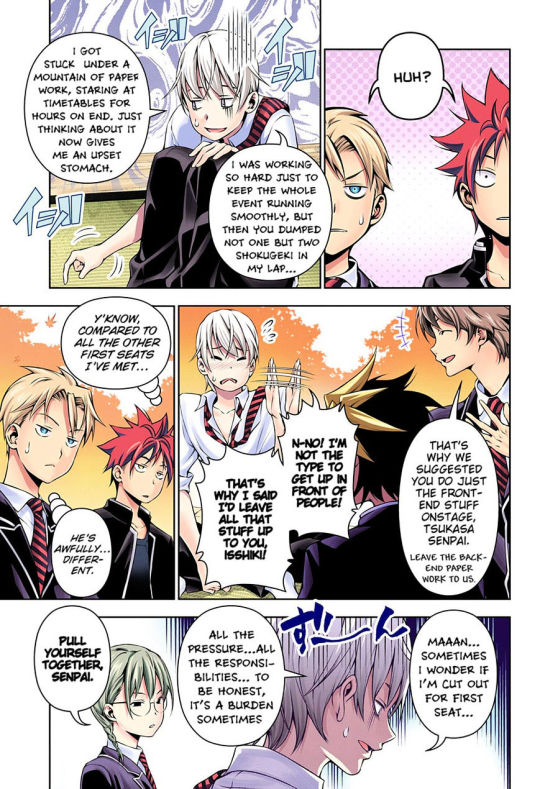
“Is he actually the 1st seat?? Omg this is getting interesting.” I thought. How could soggy guy like him can gain the highest rank in the friggin Totsuki Academy?? This fact tickled my curiosity more, I wanted to know more about this guy. I skipped to ch 132, where Soma and Megumi met Eishi in his booth (I read the chapters in order later, though). It was more emphasized that our 1st seat is a true introvert, and a perfectionist. This guy... is very similar to me.
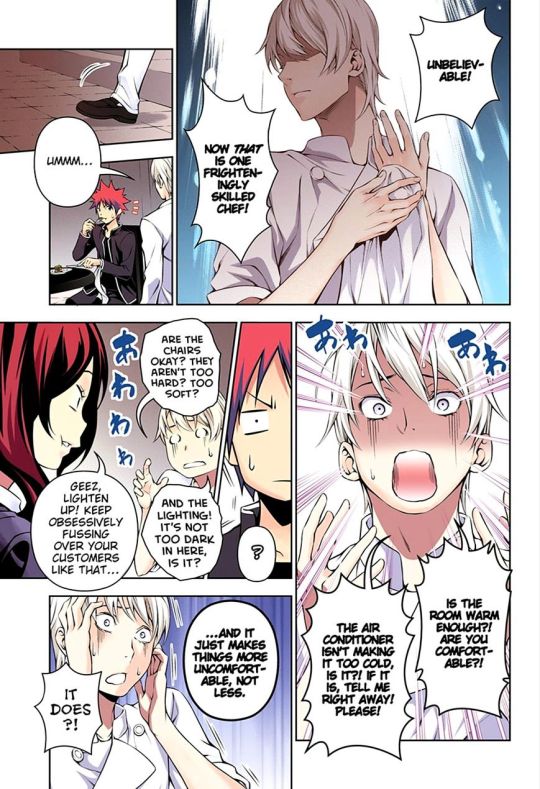
He automatically jumped into my most favorite SnS character. No, he became my most favorite anime/manga character at that time.
After I read SnS until the latest chapter (ch 145), I eagerly waited for his next apperance. When ch 148 released, I saw him on a pretty big panel, sitting leisurely while watching the Souma vs Eizan from the screen... my heart skipped a beat, my lip drew a wide smile. What’s up with me? I just knew him for like... less than a month, and yet I felt like an idiot when I saw him. Did I... fall in love?
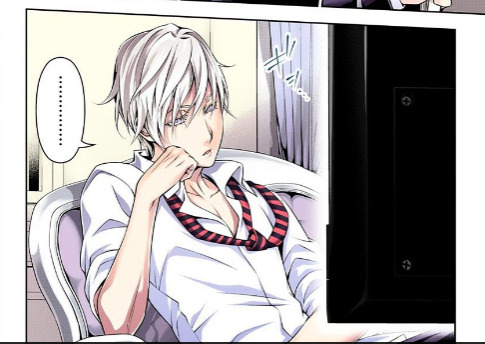
It took 4 months until his next appearance (ch 161). I was extremely happy to see him again, and I couldn’t wait to know about him more and more. During that Souma vs Eishi battle arc, I learned more about Eishi, I was amazed that the way he talked... the demeanor he showed... is very similar to me. I never met a 2D character (or perhaps irl people) who shared a lot of similarity (personality wise) with me. I felt more kinship with him more than with Megumi, who is also a shy character. This fact just made love him even more.
***
From ch 118 until Le Dessert ch 1, plus Betsubara 6 and 7 and some extras, my feelings for Eishi remains same. Here’s my 10 reason why I love a chef named Tsukasa Eishi.
1. Let’s start from the shallowest thing; looks. Yes, he is undoubtly good looking, I’m sure everyone must admit it! Nobody can resist that beautiful pale lavender iris with outstanding long eyelashes, combined with that gorgeous shining white hair... Oh, how ethereal. His fair skin, slender and long fingers, his alluring neck, his collarbone, his body shape, his waist— aaaaah ok ok I’ll stop >////< in tl;dr, people would fall in love by his looks alone, but when they find out his true self, who knows?
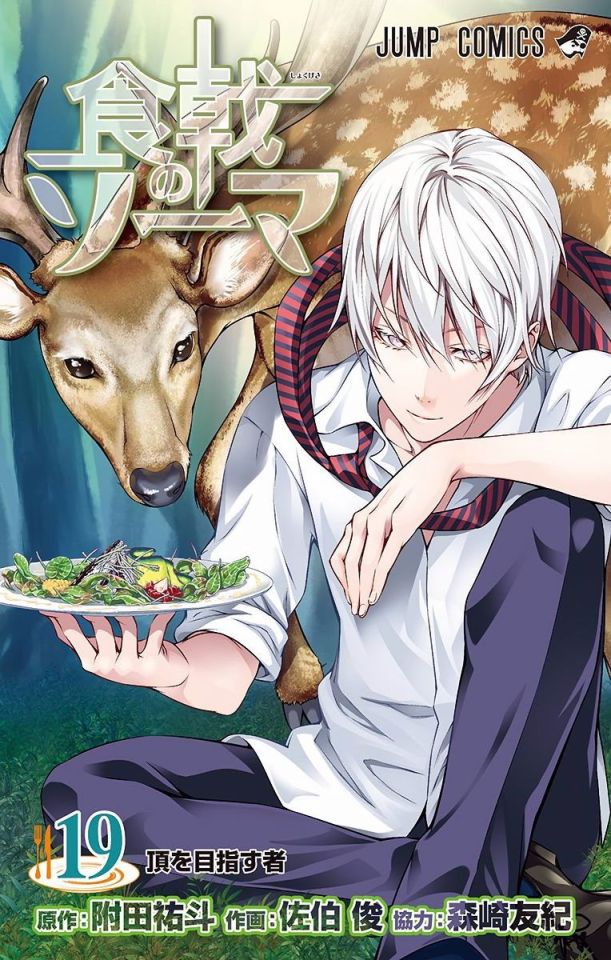
2. Fashion sense. I know you guys might find his flying necktie weird, but I admit, it looks so damn cool on him. Not to mention, I love how he wears his uniform, both school and chef one. The unbuttoned collar, half-rolled sleeves... What an unexpected style for a shy boy like him, huh? But I don’t care, if it makes him looks hotter, I’ll take it~ Not to mention the collection of casual outfits he has. He’s not on the fashionista tier for sure, but he still has good sense. Well, I can say that he looks good on everything.
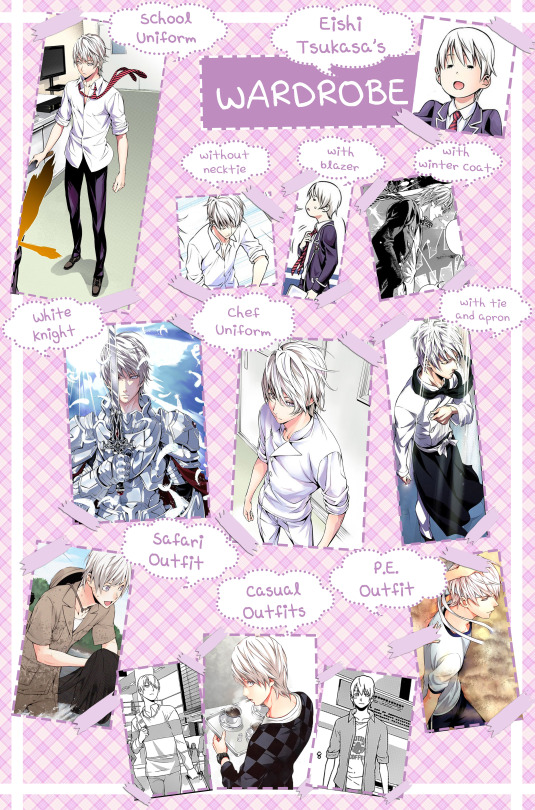
3. His voice. This is something I admitted way later. At first I wasn’t too fond of Akira Ishida’s voice on him. Too ‘husky’ for me, I thought. However, the more I hear him talking on anime, the more I’m used to it, then it grows on me. Now everytime he speaks, my heart throbs faster. The power of love is too strong haha.
4. The adorable gap moe! Gap moe! Gap moe! Eishi’s gap moe is... too cute and irresistable >///< I’m sure people’s first impression of him is... a cool, elegant, and handsome guy... he must be a very cool guy like heroine’s love interest in shoujo manga or Korean drama! Who knows if he’s actually a huge dork! He can show you his anxious, worry-wart side at unexpected time, wrecking his previous prince-like image completely. What a gap! Would he stay calm and stoic everytime people surround him? Please don’t scare this soft guy, he would be freaked out and get nervous >_<


His gap is also shown by his demeanor towards people. If it’s someone he barely knows and cares, he wouldn’t bat an eye, hence you call him an absolute selfish guy. However, he shows his care towards someone close to him. Just look how he treats Rindou (hmph, I’m so jelly :<) I’m sure he’d super sweet to his girlfriend and treat her like a princess, if he has one someday! >_<
5. If he is that spineless, is he actually an incompetent guy? Hell no! You all must know that he’s one of the best chefs in the series! If you’re going to deny this, you must read/watch a wrong series lol. He had sit on the throne of 1st seat of Elite 10 for freakin’ two years (there’s a plot hole about this, but regardless he gained the 1st seat on 2nd year or 3rd, my point still stands). The more amazing thing is, he gained it not by magic or ahem, plot no jutsu. Many said that he’s a natural genius chef, however, he worked hard for that sweet 1st seat. You can reread/rewatch the whole of SnS to prove his competence in cooking.
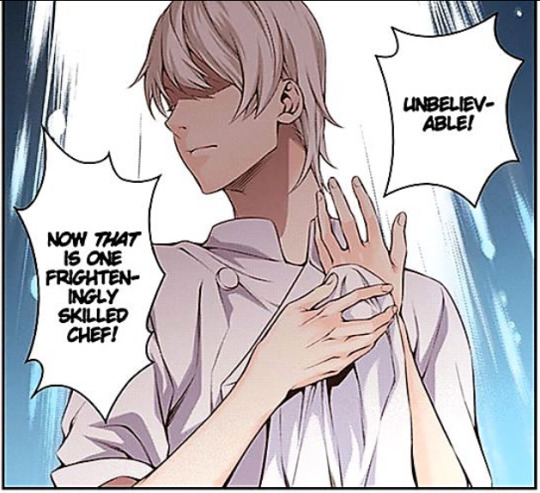
6. His elegance. French cuisine as his speciality alone proves that. His dishes always have luxurious presentation. The taste? If only I could actually taste it... ;_; Throughout the series, it’s proved that he never fails to make a lot of people amazed. Not only by his dishes, people are also enthralled by his elegance in kitchen. The way he keeps composure while cooking, the way he interacts with ingredients, the way he set the plating of his dish... it’s like watching a prima ballerina dancing in an opera. Oh, not to mention, his nickname sounds elegant and noble as heck! Let me say it; Weiss Ritter der Tafel! The White Knight of the The Table!

7. Have I said he’s a hard-worker? Sure he is. Since junior high, he had set his goal to be the 1st seat of Elite Ten, and he didn’t just sit down for the whole of his time in Totsuki. He was famous as ‘Teacher Crusher’ for his effort to drag teachers nearby to try his countless test dishes.

Even after he gained it and graduated from Totsuki, he still aimed to be a better cook! Can’t you just imagine how persistent—I mean, hard-working he is? His hardwork isn’t limited to cooking only; he is a diligent boy in general. As he got the 1st seat title, he didn’t throw his responsibility down to the rest and walk away like a boss. He hates paperworks and especially public speaking, yet he’s responsible enough not to ignore his duties. People might see him as a doormat for letting himself doing Rindou and the others’ paperworks, but not for me. Who’s the selfish one then? :p
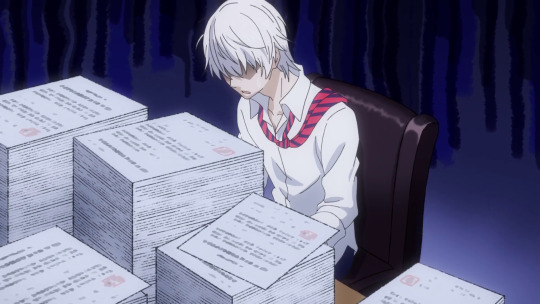
He deserves my highest respect for his hard-working nature and being responsible.
8. His innocence— I mean, it’s more like his naivety. This trait might be irritating for some people, and in Eishi’s case, it lead him to earn the ‘bastard/asshole’ title by those who misunderstand him, due to his incompetence to understand people’s feelings. It’s emphasized by the fact that he tends to be straightforward, both in words and act.
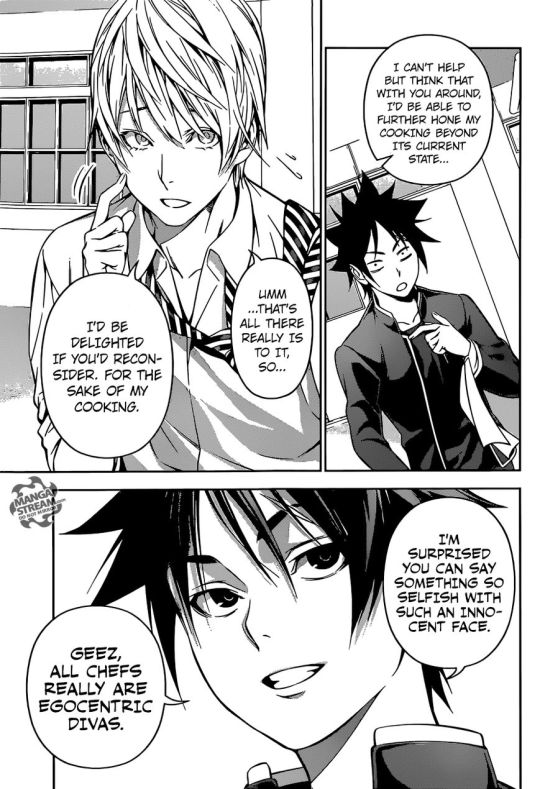
His naivety makes sense, he lacks social/communication skill since he’s an introvert (not all introverts sucks in social skill, though). He doesn’t interact with a people much. Eishi’s own world is just around cooking and nothing else lol, that’s why he’s focused on his own cooking and prioritizes it above anything else. Sounds like an autistic person, you say? Maybe. As someone who has a tiny bit of autism, I understand this side of him well and I can’t blame him for that. I always find myself being busy in my own world, and I tend not to interact with people much. I’m not saying that he’s diagnosed with autism, no. He might have a bit of it, just like myself. So don’t blame him for forgetting Kuga after his match with him, he was just way too busy in his own world XD
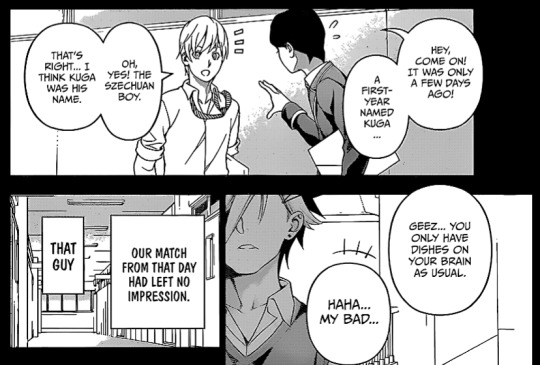
Talking about innocence... isn’t he also actually an innocent, adorkable boy? I mean, he seems to have a relatively pure mind. He never actually means to harm people. If the others think so, it’s mostly a misunderstanding. He might be blunt with his words, but he’s just being honest, you know. He never lies.

Please give him a chance, I believe he’ll grow to be a better person in future.
9. The previous point has connection with this one, his introverted nature. I can say he is 90% introvert. Isn’t it obvious? He is undoubtly shy boy, hates public speaking, easily gets nervous in front of a lot of people, prefers to cook alone, lacks of social skill... he is socially impaired, Rindou said so. However, he tries to overcome his social anxiety for the sake to be a better chef. Isn’t it great?

As a fellow true introvert, I find Eishi very relatable, thus I feel a deep connection between me and him. Every time I feel anxious in front of people, I think of Eishi that he would feel the same and imagine that we would overcome our shared obstacle together.
10. Eishi isn’t Tsukasa Eishi without his dominant trait: perfectionist.

Let’s start with the fact that his blood type is A. People with this blood type (including me) tend to be perfectionist and organized. You can search more about it on Google, and you’ll find out that Eishi fits most of A-type traits! You might see his obsession for perfection a bit annoying, but that’s Eishi for you. Everything he does must be perfect. He’s someone who makes plans and he wants to follow those plans completely. It leads him to be a hard-worker, but it also makes him prone to stress and worry. Is being a perfectionist a good thing? Yes, but it would drain yourself if you’re way too obsessed with perfection. Eishi seems... quite perfection obssessive. I’d say it’s way too much because I don’t want to see him being trapped in the endless loop of reaching perfection and drained him both physically and mentally. I’m also a perfectionist, but not as much as him, yet I understand how painful it is. I love this side of him for another reason; he always has a clear goal; honing his cooking skill to be perfect, and works hard for that. I’d prefer someone like that than a hopeless person who has no goal in their life. I admire people who try hard to reach their dreams. Also, he always gets things done properly and never try to be half-assed.

My conclusion: Eishi isn’t perfect, despite of being obsessed with perfection. He isn’t a perfect husbando material, but he’s perfect in my eyes. He has flaws and weakness, but I’d embrace those and keep loving him. I love you, Tsukasa Eishi.

24 notes
·
View notes
Text
Henry Yates: A Rebuttal
Sorry to get a bit wordy here, but I desperately needed to get this off my chest:
https://www.theguardian.com/tv-and-radio/2019/may/27/how-not-going-out-heroes-went-from-cat-fight-chemistry-to-child-saddled-losers
I’m not a person who usually responds to stuff like this because opinions are just opinions and everyone has one. But I was frankly offended by the way I, as a viewer, was characterized by this piece and I cannot let such glib ignorance go unchallenged. Honestly, this makes me very, very angry. The writer displays such a complete and fundamental misunderstanding of the programme and what makes it watchable that it truly blows my mind. I understand that some things are not to everyone’s taste, but did we even watch the same show? A few points that I specifically would like to address:
1) The idea that Lee’s hand was “forced” into settling the will-they-or-won’t-they tension, thus destroying the show. He’s getting on in years, FFS. Do you honestly think you’d still enjoy watching the show if you had to watch a 50-year-old man lusting after his landlady? Ew. That tension HAD to be resolved – you cannot sustain it indefinitely. NO SHOW CAN.
2) Secondly, do not presume to speak on behalf of all viewers of the show, Mr. Henry Yates. I for one DO give a damn about Lee and Lucy’s relationship after they got together, perhaps too much (though I will never apologize for Lee and Lucy being my OTP), and I KNOW that I am not the only one. I am also not a sad, lazy, and bored middle-aged parent resigned to watching the show every week. The episodes are, in fact, the highlight of my week, and I always throw them on to cheer myself up. I’m also an American, so I make time at 4 pm local time to brew myself a cuppa and tune into my satellite to watch these episodes as they’re broadcast – I go out of my way to watch this show live in a way that no other programme can motivate me to do. Perhaps keep your insulting generalizations of an audience you know NOTHING about to yourself, “kind sir.”
3) I also think that it is highly insulting to Lee Mack to wrongly assume that he is being forced “at gunpoint” to co-write these scripts as if he no longer cares and that attaching his name to the scripts is a badge of shame. You do know that this show is his passion project, yes? And that he devotes 10 months out of every year working hard on this show in between all of his other commitments? That this show is the thing he is most proud of in his career? And he has every right to be – look at recent episodes like Escape Room or Parachute, how smartly constructed those plots were. While some moves and lines can be anticipated, the writing takes clever and delightful turns that never fail to amuse me (and perhaps others, though I don’t presume to speak for all viewers UNLIKE SOME PEOPLE). I personally can see the care that so many people put into every shot of these episodes. Small details in the set design, the colour-coordination in the costuming, the actors’ choreography, and the blocking/framing of each scene all work very closely together to emphasize the characters, their traits, and the episode’s story. The live episode was a bloody marvel and a lot of effort was put forth by cast and crew alike – they didn’t make it easy on themselves and they acquitted themselves more than admirably! It takes a very passionate team to complete a project like that! There is not an ounce of fat on these scripts, either; every line, look, and gesture serves a purpose for the episode’s plot. The writing is tightly constructed in a manner that I can only marvel at and envy. Take Holiday Share, for example; a little throwaway line in act one ends up becoming the crux of the rising action in act three. As an English literary scholar, I find the scripts fascinating to study (and have written more than a few academic term papers about them in my undergraduate career). YOU, Mr. Yates, may not be impressed with them, but surely the fact that I, in my own capacity, find much to admire within them surely counts for something? It’s almost as if different people can assign different values to the same art! Shocking, I know!
4) It seems you object most to the “groaners” and the frequent trotting-out of Bobby Ball’s shtick. Go back and watch the earlier series, the one-liners and zingers have always been there, especially when Tim Vine was on the show. They’re a staple of the show, always have been. I’m sorry they’ve ceased to work with you, but they haven’t suddenly “appeared” to torment you in the later series. And while Bobby Ball may not appeal to you, perhaps you ought to take a step back and wonder if it’s broad humour in general that you’re opposed to, because this show’s humour is quite broad (and, guess what, it always has been). If you don’t like that, fine, but don’t pretend that the show hasn’t always been like this. Go back to the earlier series and you will not find it to be as nuanced as you seem to think it was – in fact, it was worse. Especially in the first and second series: the scripts were weaker, Lee and Tim nearly turned to the camera/studio audience after every punchline, and the chemistry between the core cast had not even begun to be built (or, in the case of series one, it was lacking completely). Lee himself has said that the show did not start to find its stride until series 3, and you can track the progression of the show over time – Lee’s writing got sharper, the cast formed dynamic working relationships which only improved with familiarity (I thought Memory from this series was a striking example of how well Lee and Sally play off of each other in a way that wouldn’t have been possible in the show’s earlier years), and the characters have truly come into their own. I am being 100% honest when I say that I have found each successive series an improvement upon the last and that makes me truly excited for what the show will produce next.
5) I always find it infuriating when people laud Lee’s work on WILTY while slagging off NGO and/or his standup with the same breath. You’re not a fan of Lee’s work, then; you’re a fan of WILTY. Lee undoubtedly demonstrates a quick-witted brilliance on Would I Lie to You?, but his talents do not end there. While it is by no means a requirement to like or appreciate absolutely everything an entertainer does, I find it hard to separate the little quips and “groaners” of Lee’s that light up the WILTY stage from the same quips and “groaners” he’s carefully honed and tested for his scripts or his routines. The humour is the same; the environment is different, but it’s still the same. Maybe that doesn’t work for you in a sitcom or on the stage, and that’s fine; but don’t call yourself a fan of Lee’s work when you think his accomplishments begin and end with a show that he literally rolls up to and expends minimal effort into and that he holds no merit outside of it.
6) This goes back to point number 2 a bit, but I do feel as though I need to explain why this piece offended me so deeply. I do not wish to go into the traumatic circumstances that led me to begin watching Not Going Out in the first place, nor the pervading circumstances that keep me so attached to the show. Let it suffice to say that, while I can appreciate what they’re trying to do, I just can’t engage with comedy dramas or more darker comedy programmes because it’s all a little hashtag #tooreal in my actual life. Not Going Out provides a much-needed bit of escapism from my real life that I can’t really get from other programmes. It’s one of the precious few shows I can turn on and feel like I’m experiencing joy again. Not Going Out is a simple show, a light-hearted show, and a fun show; it doesn’t need to be anything more, but everyone does what they need to do so well. I can appreciate all of the details in each episode as I watch it repeatedly on a loop, sometimes 2-3 times a day, to help myself feel better (and the iPlayer doesn’t even work in my country). Far from the bored, passive viewer you paint me to be, I cling to this show like it’s a lifeline. Which it is, for me. This programme has done so much to help me in times of mental and physical distress, and I love it so, so, much for that.
7) Now, sir, since you have made so many gross presumptions about myself and how I feel as a viewer of Not Going Out, I will do the same for you: come on, now. The only reason you think Lee’s brilliant on WILTY and that NGO used to be great is because he won a BAFTA for WILTY and NGO won a Rose D’Or in 2007, isn’t it?
I’m sorry, sir, that you have ceased to find amusement watching Not Going Out, but I, for one, have been enthusiastically attached to this latest series and am as far from tired of it as I possibly could be. I’d suggest you leave the viewing to us, switch off your telly, and attempt to remove your head from your own arse – it surely must be beginning to smell in there.
#Lee Mack#not going out#ngo#the guardian#henry yates#op ed#sorry not sorry#i love this show#all right i'll get off my soap box now
6 notes
·
View notes
Text
Miraculous Musings: I love Miraculous but allow me to rant here a little bit…

I’ll admit that the writing for the show especially for this second season has been… at times questionable in my opinion.
I know as a person in my late twenties, I’m technically not the target demographic for this series so no little kid is going to actually care that much about proper character development or stuff that I might pay attention to in a favoured series.
I’m not here to harshly criticize the show. Like I said, I’m a fan of ML and I’ve been so since it debuted back in 2015. While I’ll admit that S2 has been one of the best seasons of the series I’ve seen so far, there were things I noticed this season involving the writing for certain characters that…rubbed me the wrong way.
The one character in particular is Ladybug/Marinette. S2 of Miraculous made me realize that…between Ladybug and Chat Noir, I don’t connect that well to Ladybug as a character. When I first heard that there were going to be more heroes joining the fight, I was excited because I was curious to see how the inclusion of more heroes would affect the dynamic between Ladybug and Chat Noir as they learn to get along with their fellow heroes while still maintaining their close comradery. Plus I was curious to see how those heroes would’ve been chosen and for what traits would’ve made them worthy of being entrusted with their own miraculous. At first I thought Master Fu would be the one to choose the remaining holders as he did with Adrien and Marinette in S1. But instead, Master Fu made Ladybug be the one the pick her new allies.
Ok…I didn’t have a problem with this at first… until I realized that the other heroes weren’t permanent characters but more so like allies that Ladybug could summon from time to time whenever hers and Chat Noir’s own abilities weren’t enough to stop an Akuma.
Disappointing but again, I didn’t mind this at all…until I learnt that Ladybug/Marinette will be the only one trusted by Master Fu with the responsibility of picking the other heroes with no inclusion of Chat Noir. Are…you…KIDDING ME?!
This brings me to my main issue for this season. The over-reliance on Ladybug.
I get it. I get that Ladybug is our main heroine. I get that she’s our main character. I get that she is the one with the power to stop Akumas emphasizing her importance. I get all of that.
But you know why this is still a problem? Because Chat Noir is a main character too. Miraculous is as much Adrien Agreste’s/Chat Noir’s story as much as Ladybug but rather than treating him as an equal to Ladybug…Chat Noir is often just…side-lined. Or should I say....side-KICKED.
How many times have we been told by characters in the show (like the kwamis or Master Fu) of how absolutely important Ladybug’s role in the story is? More than once, right?
How many times have we been show in the actual story how important Ladybug is? Pretty much every episode of the series since season one, right?
Ok. Now how many times have we been shown how important Chat Noir’s role in the story is? And I’m not just talking about his role as Ladybug’s loyal partner or Marinette’s love interest when he’s Adrien? I’m talking, has the show actually highlighted why Ladybug needs Chat Noir? No.
We’ve been told that both the Black Cat and Ladybug Miraculous need to be used together inorder to grant ultimate power. This shows the importance of them both because both are needed together. Both are important. I just wish the show would highlight this more in LB and CN’s partnership.
Yet the show keeps pushing this weird contradiction that Ladybug doesn’t need Chat Noir. Not really. The impression I got from Miraculous was that both Ladybug and Chat Noir were important to the story. That they’re basically like light and dark---they need each other in order to balance the other out. That’s the impression I got. Has this been shown in the show itself? Er....yes...and no? Time and time again, the show keeps elevating Ladybug above Chat Noir in spite of them supposedly sharing the same level of importance.
I didn’t mind that at first. I mean it annoyed me in S1 but I was ok with it because I had hoped S2 would’ve explained the importance of Chat Noir and why he is needed, y’know. But instead we got more scenes where Ladybug is pushed forward while Chat is pushed in the background.
Again, I get Ladybug’s importance because she’s the only one who can purify akumas. But I don’t understand why she had to be the only one entrusted to pick the other heroes. Why not both Ladybug and Chat Noir?
What has Ladybug done exactly to show to demonstrate to Master Fu that she should be the only one to have this responsibility? As I can recall, Master Fu chose both Adrien and Marinette as candidates at the same time. So why? WHY WAS LADYBUG THE ONLY ONE TRUSTED!?
I got annoyed at the constant leaving Chat Noir in the dark on things. I thought that Ladybug and Chat Noir were supposed to be partners. That it takes the both of them to stop Hawkmoth.
But the show has shown time and time again how much Ladybug doesn’t need Chat Noir. I don’t even understand why they changed the title of the show to Miraculous Tales of Ladybug and Chat Noir since they clearly keep pushing Ladybug’s relevance more than Chat Noir.
It’s not about Chat Noir. Chat Noir isn’t Ladybug’s partner or her equal. He’s her sidekick that she can swap out for someone else whenever the opportunity sees fit. And let’s not forget the number of times Chat’s been turned evil or made a dude in distress just so his precious Ladybug can save the day without him…again!
Seriously the number of times Ladybug had to reassure Chat Noir of their partnership this season irked me. It’s like watching a clingy, insecure boyfriend needing assurance from his girlfriend whether she loves him or not?
This is what Chat Noir has been reduced to. A guy who needs assurance from Ladybug that she wouldn’t replace him.Our hero of Paris ladies and gentlemen.
And of course, Ladybug gives him the answer he wants to hear, despite at times acting and even saying in Chat Noir’s presence how much he annoys her. Our heroine of Paris ladies and gents. And let’s not forget how much the episodes where Ladybug can do it all on her own conflicts with the episodes where it is implied that she and Chat Noir are a team.
This is what made episodes like Puppeteer and Princess Fragrance frustrating to watch after episodes like Antibug and Reflecta. Pick a tone and stick with it. Do you want Ladybug to be the main heroine who can save the day without Chat Noir or do you want Ladybug and Chat Noir to be a team who need each other to save the day?
Which is it Team Miraculous?!
You can’t have both because it’s a confusing tone, at least in my opinion. You can’t a strong female character who doesn’t need no boy in a cat costume to help her save the world while also saying within the lore of the story that this same strong female does need to work with the boy in the cat costume because of plot. What?
Miraculous, I love you but as a show, why do you keep doing this? If Ladybug and Chat Noir are partners and equals in this fight against Hawkmoth then show it like that.
Don’t give Ladybug all the responsibility of everything while treating Chat Noir as an afterthought. I didn’t like how Master Fu advised Marinette to keep Chat Noir in the dark in Siren. I never understood the justification behind that decision? Does Master Fu know that Adrien’s dad is Hawkmoth or suspects it? If so then it would explain the need to keep him out of things but…the series doesn’t address it that way? Instead it just looks like Master Fu was forcing Ladybug to keep her own partner out of the loop when he, Master Fu, also PICKED CHAT NOIR! SO WHY IS HE LETTING LADYBUG KEEP SECRETS FROM HIM?!!!
I don’t get it. Another issue I had with Ladybug’s characterization is the fact that she never feels the consequences of her mistakes. Not really?
Whenever another character messes up in the series, they get penalized for it. When Marinette/Ladybug does something wrong, it gets glossed over---even forgotten, completely all forgiven in the next scene.
I don’t like how this season just kept…I dunno. I feel like S2 has had Ladybug/Marinette tiptoeing over the lines of being a well-written and relatable character to a complete sue void of any relatability.
This is why I like Chat Noir over Ladybug. He’s the more relatable of the two. I can’t get behind Ladybug because the show has placed her in this perfect bubble where even when she does something wrong; she never truly faces the consequences of her actions.
In the latest Queen’s Battle two-parter, Marinette lost a miraculous. Something she was entrusted to do by Fu. Master Fu lost two miraculouses and has to live with the guilt of failing his fellow guardians as demonstrated in ‘Sandboy’. Marinette loses one miraculous and despite trusting her and only her by the way with such an important task, she isn’t penalized for it at all. You would think that Marinette losing even one miraculous by accident would really upset Master Fu. Even cause him to scold Marinette, not harshly but in a way to further discipline her and emphasize the importance of keeping the miraculouses safe. No, instead Master Fu just reacts calmly and says that he trusts Marinette to rectify everything.
I’m sorry…what?
I mean…yes sure, Marinette does eventually fix problem and get the Bee Miraculous back but this is after losing it in the first place, having it end up in the hands of a user who then used it for their own personal gain. All before this miraculous user is then akumatized forcing Chat Noir no choice but to destroy the Miraculous. This is the first time in the show, a Miraculous is destroyed. It’s also a first time a miraculous is akumatized. Yet…it’s not treated as something with high stakes or a more serious aftermath.
You would think that Master Fu wouldn’t trust Marinette for a while after this incident, regretting giving her the choice in the first place. But no, once against, there are no repercussions to Marinette’s actions.
That’s another problem with this. The fact that every problem in the show can be easily fixed by Ladybug’s power. I get that the Ladybug miraculous is one of the two most powerful miraculous of the entire set but…but…seriously?
One of the miraculous users got akumatized forcing Chat Noir no choice but to destroy a miraculous. You would think that something like that could have some form of serious outcome, like I dunno---destroying the miraculous means killing the kwami connected to it. Something to show that losing a miraculous is more serious than just having it fall in the wrong hands but it can also cost a kwami its own existence. Something like that.
But nope, once again, everything is fixed by Ladybug. She doesn’t even get scolded for it short of Chat Noir reacting surprised to her losing a miraculous. This is then followed up by Ladybug rudely calling out Chat Noir for ‘losing his miraculous’ which we all know didn’t happen since Style Queen turned Adrien into a glitter statue forcing Plague to flee to Master Fu.
Also…why use the excuse of Chat losing his miraculous? Why couldn’t they have just said that Chat Noir’s civilian identity was attacked by Style Queen during her rampage on the city? Just have Style Queen turn all of Paris into Glitter and say Chat was one of her unfortunate victims. Why make Chat look irresponsible and make him sound that way so that Ladybug could call him out on it but not herself especially when SHE IS THE ONE WHO IRRESPONSIBLE AND WAS THE ONE WHO ACTUALLY LOST A MIRACULOUS.
Oi. Seriously the writing at times this season…bugged me. No pun intended. But inspite of this, this doesn’t mean that I don’t still like the show. It’s just I had to talk about this because it really got to me last episode.
~LittleMissSquiggles (2018)
85 notes
·
View notes
Text
Why William took his own life: a fan theory
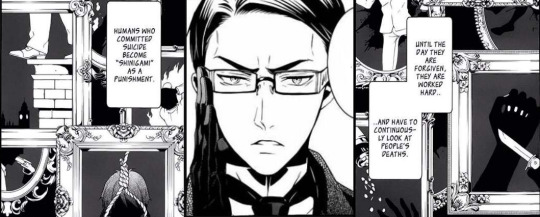
In Kuroshitsuji, the grim reapers (or shinigami) are former humans who committed suicide. This begs the question of what the current reapers were like as humans, as well as what led them to take their own lives to begin with. I’m going to take a look at William T. Spears and what his reasons for it might have been.
William’s personality
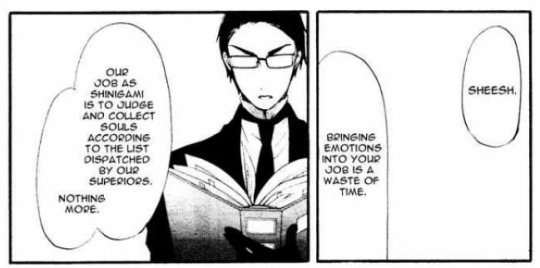
To hypothesise about the circumstances of Will’s death, we first have to consider his personality. To me, his most striking characteristics are extreme distaste for demons and unusual dedication to his work. Almost everything Will ever says or does is related to his job:
The first time he appears in the manga, he introduces himself as “William T. Spears of the Dispatch Management Division”. He emphasizes his identity as a representative of his organization instead of just giving his name (as Grelle and Ronald do).
His most commonly-stated concern is not being able to finish work on time.
He’s very strict about following Dispatch’s rules himself, as well as harshly policing any subordinates who disobey them.
He constantly complains about working overtime, the Dispatch being understaffed, and the incompetence of his co-workers.
He believes a shinigami’s duty should be placed above everything else, including one’s own needs and feelings.
His repulsion towards Sebastian may not be a personal thing so much as a job-driven attitude: after all, demons devour the souls which shinigami are supposed to collect, making the latter group’s job significantly more difficult. It’s no wonder, then, that Will despises Sebastian and his ilk.
As you can see, Will’s whole (after)life is reduced to fulfilling his duties; in contrast to others (Grelle, Ronald, Undertaker), he doesn’t seem to think of himself as an individual as much he does an employee of the Dispatch.
Another of Will’s notable features is the limited range of emotions he expresses. Every time we see Suit, he’s either irritated or expressionless; strong positive emotions (such as excitement, joy, or love) are foreign to him. Other reapers enjoy the company of others (including humans), and are often seen enjoying their duties, but Will isn’t like that at all. All that matters to him is his job, but even fulfilling his duties doesn’t seem to make William happy. Quite the contrary in fact, as his job is the main source of his problems. It’s quite possible he doesn’t like being a shinigami one bit, and yet – unlike the Undertaker – he has never deserted, trying to do his best for the sake of his organization, dealing with its demands and performing tasks way beyond the scope of his assigned duties, never reaching satisfaction. This whole situation must be very stressful; no wonder Will’s so anxious and frustrated all the time...
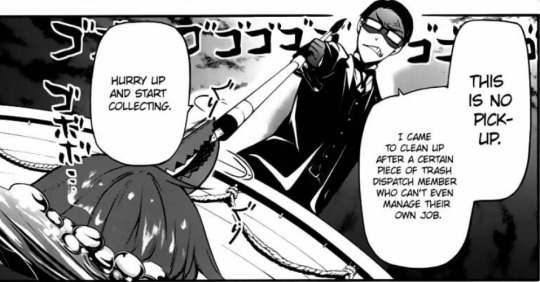
William’s hypothetical past
The way William the shinigami thinks and acts can’t be too different from how he thought and acted as a human, therefore it’s probable that his current obsession with work and work-related problems started even before he joined the Dispatch, and could even have been a significant factor in his suicide.
This idea occurred to me when I came across a phenomenon called “karojisatsu”, a Japanese term for suicide induced by stress from overwork. Alongside with karoshi (death from overwork), karojisatsu has been a big social issue in Japan ever since the economic crisis in the late 1980s/early 1990s, which forced people to work much harder and longer than before. By the end of the 1990s, the suicide rate among the working-age population had increased dramatically. Researchers have pointed out that the enormous pressure placed on the employees, including extremely long working hours and low social support at work, likely influences these salarymen to commit suicide. According to government figures cited in the Washington Post, Japan had 2,207 work-related suicides in 2007, and 672 of these caused by stress from work. Also, despite a recent decline in suicide rates for Japan’s general population, statistics still show alarmingly high suicide rates among young men that correlate strongly with extreme stress and fatigue from overwork.
William as karojisatsu victim
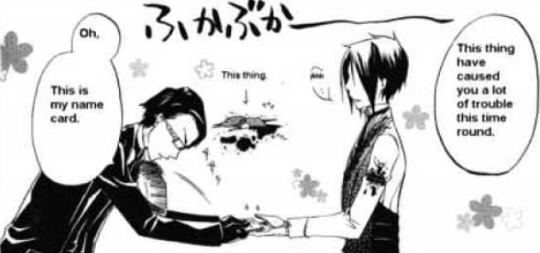
Toboso-sensei, being Japanese herself, would be familiar with this concept, and it seems she used it as inspiration for Will’s character, seeing how well he fits the image of a Japanese salaryman (although he is more impolite than one would expect of such an individual). One paper examining the characteristics of people who committed karojisatsu lists traits that match William’s character very well:
„Eleven of the victims (50%) wrote suicide notes … [with] a tone of self-reproach for their poor performance at work. Work was so central to these people’s self-esteem that their inability to cope with career-related demands was the biggest cause of their suicide”. William is concerned about his work performance, he wants everything to be done by the book, and he becomes irritated if things go wrong. Although he doesn’t hesitate to blame others for delays, he still feels responsible for his tasks and worries about not completing them on time. He might’ve been in a similar situation before he died – due to his previous employer’s inhumane demands, his physical and mental health decreased over time and eventually led him to suicide.
Another large-scale effect influencing the work-related suicide epidemic in Japan is what could be called a culturally-enforced strong work ethic. “Japanese workers work very hard, even when suffering from poor physical or mental health due to overwork, and many workers will say, ‘If I fail now, I will burden my co-workers. Therefore, I cannot avoid work.” Similarly, William places duty above all else, including his own thoughts and feelings (and demands the same from others). He has completely devoted himself to his role as a shinigami. According to him, being a perfect reaper means completing one’s assignments without fail, at any time, and in any state. Having similarly strict attitudes in his previous life as a human could be another factor in his untimely demise.
Low social support (at work) is another common trait of karojisatsu victims. Although we don’t know what Will was like when he was a human, I doubt he had many friends. He seems to be a loner, limiting his interactions with others to work-related business, and doesn’t appear to enjoy any kind of company. If he was like that back when he was among the living, it’s unlikely that he had any friends or companions to support him emotionally, exacerbating the strain on his mental health.
“Individuals might have indicated that they were tired or exhausted or that they wanted to retire”. Will constantly complains about being too busy and unable to finish work on time, and refers to his side tasks as being bothersome and unpleasant. He isn’t emotionally motivated to do what he does, he’s simply following orders because he’s obliged to do so and has a strong sense of the weight of his responsibilities. So although Will’s never directly stated he wants out, his whole attitude screams “This whole shinigami thing is a pain, I’m doing it only because I have to”. It’s clearly exhausting for him. What’s even worse, it might be the second time he’s been in a situation like this, if we assume his current state even vaguely reflects that of his pre-suicide self, he might have been tired of his “human” job, but was unable to quit (due to a strong work ethic/financial reasons/worsening mental health/etc.) and forced himself to stick with it until the very literal end. This would make working as a shinigami a doubly-cruel punishment for him, as it would be like reliving that ‘work hell’ he (could have) already experienced as a human.
“Overwork might not have been a direct cause of suicide; however, mental health problems, especially depression, may have contributed to the factors that led up to suicide”. William doesn’t seem depressed, you might say, but for men, depression is often masked by non-obvious symptoms, such as physical exhaustion, aggression, irritability and addictions, and thus remain undiagnosed. As the authors of the article themselves note, “Japanese male workers tend to show physical symptoms rather than depressive feelings due to unfavorable cultural attitudes toward depression”. Therefore, the possibility of William suffering from depression (obviously a strong risk factor for suicide), cannot be excluded. This would also explain his behaviour pretty well (constant exhaustion, negativity, being harsh and violent towards others…).
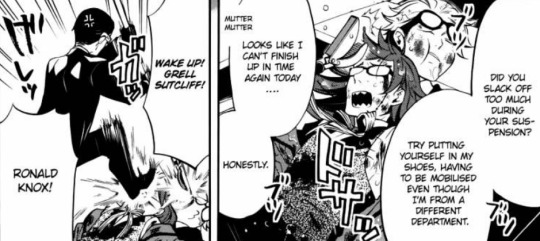
In conclusion: Work-related stress almost undoubtedly caused Will’s suicide, or at least contributed to it significantly. Although I have no direct proof, and indeed there might never be any (unless sensei eventually decides to reveal Suit’s past), I think this theory works well with Will’s personality and adds much more depth to him, making him something more than just “tight-assed guy who’s always angry at Grelle and complains a lot”. After all, there was a time when the Undertaker was a purely comedic character, and later that turned out to be only one piece of his complex personality (and/or a coping mechanism he developed to deal with the loss of his loved ones). So why would William be different...?
*** Proofreading: @baroness-caffeine (Thank you soooo much for taking care of that despite being busy, you did a great job!)
#kuroshitsuji#black butler#william#william t. spears#theory#fan theory#grim reapers#shinigami#death#suicide
95 notes
·
View notes
Photo

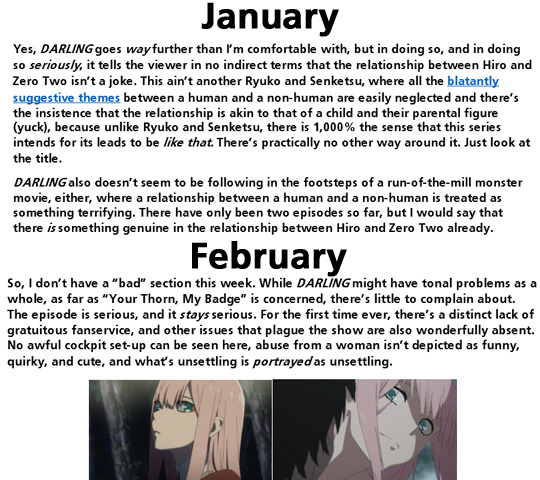
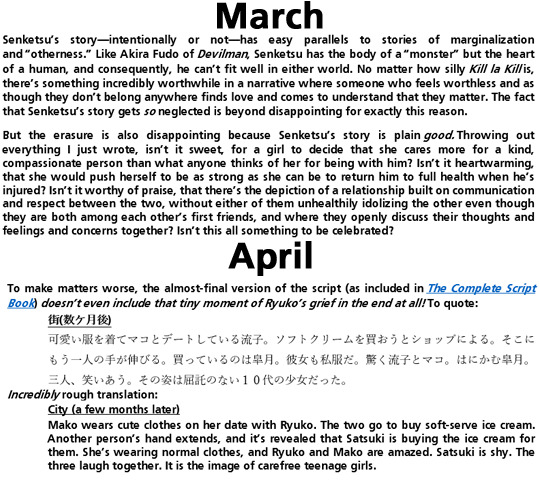
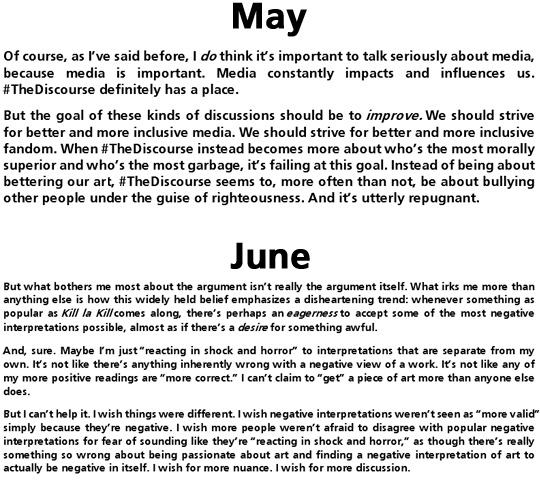

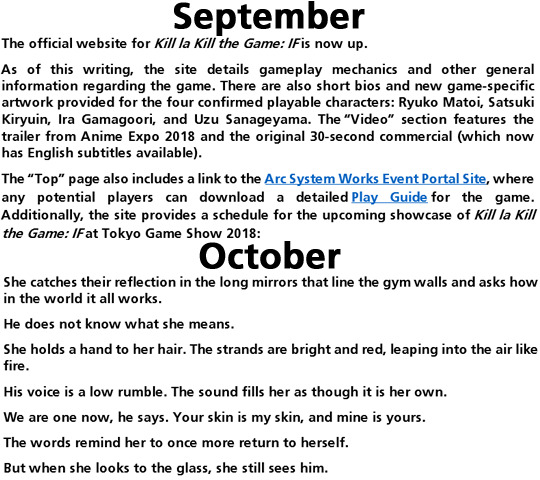
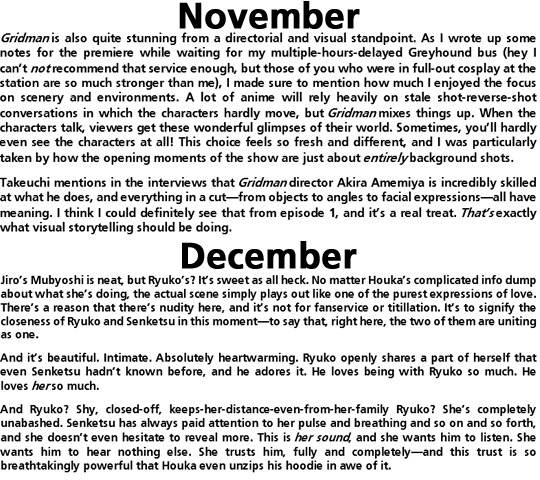
I can’t think of anyone else who does this kind of year-in-review compilation for writing, but I put one together for 2017 and would like to continue to do so. It’s just nice to get a sense of what I’ve accomplished in 12 months, especially when I feel that I haven’t accomplished much of anything.
Unlike last year, though, I’m including all kinds of writing I’ve done this time around. My non-fiction work is important to me, too.
Mental health talk and text versions of these snippets under the cut.
To cut right to the chase, 2018 was rough. No matter all my flowery pep talks trying to be positive and uplifting, my feelings of inadequacy skyrocketed. I drenched myself in my own self-depreciating “humor,” and I ridiculed my hopes and dreams. Every time I felt my work was poorly received, I’d tell myself, “Well, what did you think would happen? That people would actually like what you do?”
But I never wanted to stop “keeping on.” I wanted to continue what I loved no matter what, and I threw myself into my writing. There would be days where I wouldn’t eat or do anything else until I’d finished an essay. I spent practically the entire month of November sleeping on my couch because I never wanted to “go to bed” until I had written more, posted more, done more. My head became filled with a constant mantra of, “You’ll never be enough.”
And I wanted to prove myself wrong. I wanted to be something—even if that something was just being happy with myself. But all the proclamations that I’m “getting better!” and “improving so much!” never did much for my confidence. What good is progress, after all, if I still feel like I’m nowhere?
Still, I tried to be productive about my failure. So I wasn’t satisfied with what I was doing. What could I do to be satisfied? I took different approaches to my content. I asked for advice, opinions. But that feeling of being nothing remained.
And yet, I’d always say things like, “I’m okay. I’m just frustrated.” Or, “I felt better after I binged some Netflix, haha.” I wanted to be helpful, inspiring. I wanted to tell people that it’s hard, but it gets better. I wanted to come off as the happy person I so wish to be, and I felt guilty every time I revealed any of my insecurities. Nobody wants to hear that stuff. Everyone suffers. I’m not special.
So maybe that’s why I feel it’s important to say now that I’m not okay. I’m hurting. I’m in pain. There are times I hate myself so much that I can think of nothing but how I’m ugly both inside and out, that I’m selfish, ungrateful, a total bitch.
And I want to be better! Of course I do. And I want to continue to work to be better.
But right now? I’m not okay. And running away from that fact and trying to hide it won’t help me or anyone else.
It was a rough year. I feel I made a total fool of myself more times than I would care to admit. But I also created a lot of art. I shared a lot of art with the world.
And you know what? I am proud of myself. I did impact people with what I did. I answered over 100 asks! I added more than 17 pages to my “replies” tag! I’m not nothing, and I need to stop treating myself like I am!
On to a better, healthier 2019!
Texts
January
Yes, DARLING goes way further than I’m comfortable with, but in doing so, and in doing so seriously, it tells the viewer in no indirect terms that the relationship between Hiro and Zero Two isn’t a joke. This ain’t another Ryuko and Senketsu, where all the blatantly suggestive themes between a human and a non-human are easily neglected and there’s the insistence that the relationship is akin to that of a child and their parental figure (yuck), because unlike Ryuko and Senketsu, there is 1,000% the sense that this series intends for its leads to be like that. There’s practically no other way around it. Just look at the title.
DARLING also doesn’t seem to be following in the footsteps of a run-of-the-mill monster movie, either, where a relationship between a human and a non-human is treated as something terrifying. There have only been two episodes so far, but I would say that there is something genuine in the relationship between Hiro and Zero Two already.
February
So, I don’t have a “bad” section this week. While DARLING might have tonal problems as a whole, as far as “Your Thorn, My Badge” is concerned, there’s little to complain about. The episode is serious, and it stays serious. For the first time ever, there’s a distinct lack of gratuitous fanservice, and other issues that plague the show are also wonderfully absent. No awful cockpit set-up can be seen here, abuse from a woman isn’t depicted as funny, quirky, and cute, and what’s unsettling is portrayed as unsettling.
March
Senketsu’s story—intentionally or not—has easy parallels to stories of marginalization and “otherness.” Like Akira Fudo of Devilman, Senketsu has the body of a “monster” but the heart of a human, and consequently, he can’t fit well in either world. No matter how silly Kill la Kill is, there’s something incredibly worthwhile in a narrative where someone who feels worthless and as though they don’t belong anywhere finds love and comes to understand that they matter. The fact that Senketsu’s story gets so neglected is beyond disappointing for exactly this reason.
But the erasure is also disappointing because Senketsu’s story is plain good. Throwing out everything I just wrote, isn’t it sweet, for a girl to decide that she cares more for a kind, compassionate person than what anyone thinks of her for being with him? Isn’t it heartwarming, that she would push herself to be as strong as she can be to return him to full health when he’s injured? Isn’t it worthy of praise, that there’s the depiction of a relationship built on communication and respect between the two, without either of them unhealthily idolizing the other even though they are both among each other’s first friends, and where they openly discuss their thoughts and feelings and concerns together? Isn’t this all something to be celebrated?
April
To make matters worse, the almost-final version of the script (as included in The Complete Script Book) doesn’t even include that tiny moment of Ryuko’s grief in the end at all! To quote:
街(数ケ月後)
可愛い服を着てマコとデートしている流子。ソフトクリームを買おうとショップによる。そこにもう一人の手が伸びる。買っているのは皐月。彼女も私服だ。驚く流子とマコ。はにかむ皐月。三人、笑いあう。その姿は屈託のない10代の少女だった。
Incredibly rough translation:
City (a few months later)
Mako wears cute clothes on her date with Ryuko. The two go to buy soft-serve ice cream. Another person’s hand extends, and it’s revealed that Satsuki is buying the ice cream for them. She’s wearing normal clothes, and Ryuko and Mako are amazed. Satsuki is shy. The three laugh together. It is the image of carefree teenage girls.
May
Of course, as I’ve said before, I do think it’s important to talk seriously about media, because media is important. Media constantly impacts and influences us. #TheDiscourse definitely has a place.
But the goal of these kinds of discussions should be to improve. We should strive for better and more inclusive media. We should strive for better and more inclusive fandom. When #TheDiscourse instead becomes more about who’s the most morally superior and who’s the most garbage, it’s failing at this goal. Instead of being about bettering our art, #TheDiscourse seems to, more often than not, be about bullying other people under the guise of righteousness. And it’s utterly repugnant.
June
But what bothers me most about the argument isn’t really the argument itself. What irks me more than anything else is how this widely held belief emphasizes a disheartening trend: whenever something as popular as Kill la Kill comes along, there’s perhaps an eagerness to accept some of the most negative interpretations possible, almost as if there’s a desire for something awful.
And, sure. Maybe I’m just “reacting in shock and horror” to interpretations that are separate from my own. It’s not like there’s anything inherently wrong with a negative view of a work. It’s not like any of my more positive readings are “more correct.” I can’t claim to “get” a piece of art more than anyone else does.
But I can’t help it. I wish things were different. I wish negative interpretations weren’t seen as “more valid” simply because they’re negative. I wish more people weren’t afraid to disagree with popular negative interpretations for fear of sounding like they’re “reacting in shock and horror,” as though there’s really something so wrong about being passionate about art and finding a negative interpretation of art to actually be negative in itself. I wish for more nuance. I wish for more discussion.
July
I mean, just imagine this. You’re fighting a battle whose outcome will literally decide whether or not your entire planet explodes into a billion pieces in like two hours. It’s not only your life on the line. Everyone you care about have their lives on the line, too.
To make matters worse, it ain’t going well for your side. You’ve been rendered basically immobile by a cheap attack from these world-destroying baddies… and so have all your allies. Things are looking pretty grim, to say the least.
And then one of your big-name enemies goes and does it. She laughs at your efforts and taunts you and—get this—she says something that totally insults your OTP.
Now, a normal person would probably not be thinking about OTPs during a fight to save the Earth from turning into confetti.
A normal person is not Mako Mankanshoku.
August
But I find Grosz’s thesis compelling in regards to Kill la Kill because, in a lot of ways, Ryuko and Senketsu do rather embody typical positions of men and women in fictional stories both East and West… except, the roles are reversed. Ryuko is the unruly, aggressive, and hot-blooded protagonist just as a man often is, and Senketsu exhibits many traits that are traditionally associated with women; he’s sensitive, emotional, and a considerable worrywart. Further, while I find the term “love interest” both degrading and unfitting for Senketsu in a series that Word of God denies any romantic intention for, I have to admit that he fits many of the conventions. In an anime with a cast primarily composed of women, the fact that Senketsu is arguably coded as male makes him, just as the standard heteronormative “love interest,” the most narratively significant character of another gender in the show (for just a few other examples, see Ran from Detective Conan, Sam from Danny Phantom, Katara from Avatar: The Last Airbender, and Tuxedo Mask from Sailor Moon). Whether I’m watching an anime or an American cartoon, I don’t think I’d be too surprised to see a scenario like the one from the end of Kill la Kill’s thirteenth episode, where a man tells a woman that he’s afraid of losing control and needs her to be there for him so that he doesn’t.
September
The official website for Kill la Kill the Game: IF is now up.
As of this writing, the site details gameplay mechanics and other general information regarding the game. There are also short bios and new game-specific artwork provided for the four confirmed playable characters: Ryuko Matoi, Satsuki Kiryuin, Ira Gamagoori, and Uzu Sanageyama. The “Video” section features the trailer from Anime Expo 2018 and the original 30-second commercial (which now has English subtitles available).
The “Top” page also includes a link to the Arc System Works Event Portal Site, where any potential players can download a detailed Play Guide for the game. Additionally, the site provides a schedule for the upcoming showcase of Kill la Kill the Game: IF at Tokyo Game Show 2018:
October
She catches their reflection in the long mirrors that line the gym walls and asks how in the world it all works.
He does not know what she means.
She holds a hand to her hair. The strands are bright and red, leaping into the air like fire.
His voice is a low rumble. The sound fills her as though it is her own.
We are one now, he says. Your skin is my skin, and mine is yours.
The words remind her to once more return to herself.
But when she looks to the glass, she still sees him.
November
Gridman is also quite stunning from a directorial and visual standpoint. As I wrote up some notes for the premiere while waiting for my multiple-hours-delayed Greyhound bus (hey I can’t not recommend that service enough, but those of you who were in full-out cosplay at the station are so much stronger than me), I made sure to mention how much I enjoyed the focus on scenery and environments. A lot of anime will rely heavily on stale shot-reverse-shot conversations in which the characters hardly move, but Gridman mixes things up. When the characters talk, viewers get these wonderful glimpses of their world. Sometimes, you’ll hardly even see the characters at all! This choice feels so fresh and different, and I was particularly taken by how the opening moments of the show are just about entirely background shots.
Takeuchi mentions in the interviews that Gridman director Akira Amemiya is incredibly skilled at what he does, and everything in a cut—from objects to angles to facial expressions—all have meaning. I think I could definitely see that from episode 1, and it’s a real treat. That’s exactly what visual storytelling should be doing.
December
Jiro’s Mubyoshi is neat, but Ryuko’s? It’s sweet as all heck. No matter Houka’s complicated info dump about what she’s doing, the actual scene simply plays out like one of the purest expressions of love. There’s a reason that there’s nudity here, and it’s not for fanservice or titillation. It’s to signify the closeness of Ryuko and Senketsu in this moment—to say that, right here, the two of them are uniting as one.
And it’s beautiful. Intimate. Absolutely heartwarming. Ryuko openly shares a part of herself that even Senketsu hadn’t known before, and he adores it. He loves being with Ryuko so much. He loves her so much.
And Ryuko? Shy, closed-off, keeps-her-distance-even-from-her-family Ryuko? She’s completely unabashed. Senketsu has always paid attention to her pulse and breathing and so on and so forth, and she doesn’t even hesitate to reveal more. This is her sound, and she wants him to listen. She wants him to hear nothing else. She trusts him, fully and completely—and this trust is so breathtakingly powerful that Houka even unzips his hoodie in awe of it.
#just before 2018 ends over here!#goop makes a personal post#long post#ramblings#happy new year y'all!
19 notes
·
View notes